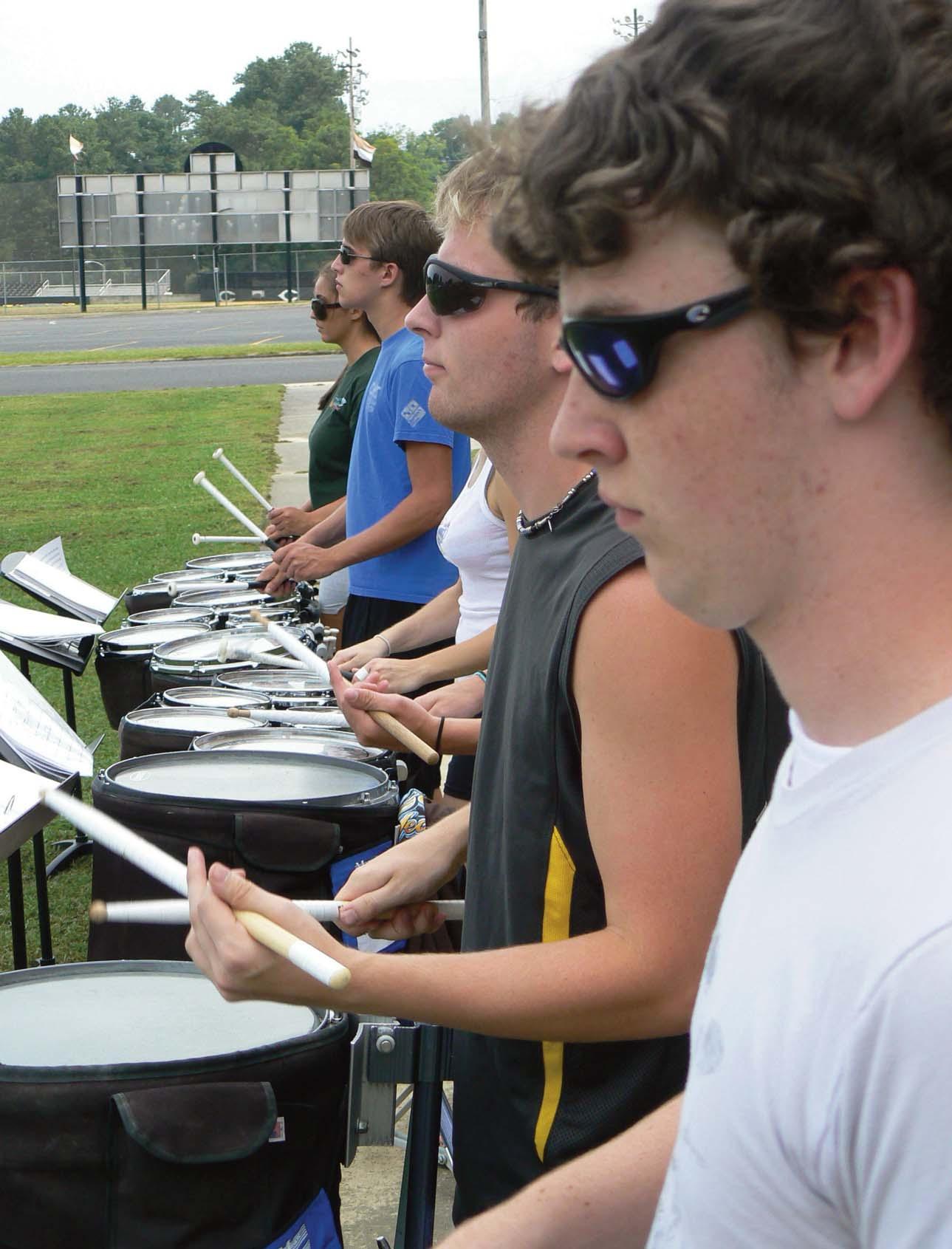

breve the official publication of the Alabama Music Educators Association August/September 2012 www.alabamamea.org www.alabamamea.org Back to School Issue
ala




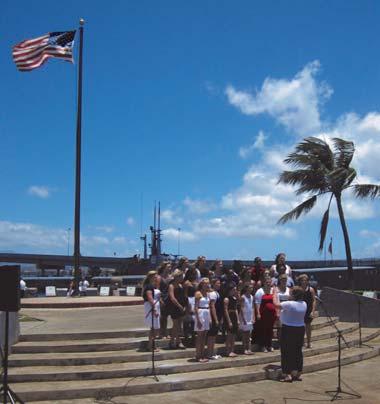



Landmark Music Festivals (205) 714-7888 www.travellandmark.com (800) 681-4188 FestivalsDestinations -81 ) 6 00(8a andma ww www ww 4188 rk Music ndmark.travella (205) .com 714-7888 nationsDesti
This comprehensive education tool brings harmony training, rhythm training and ensemble timing together in one convenient educator resource. It enables music educators to clearly demonstrate for students how to tune individual notes within chords, so that entire chords may be tuned. The HD-200 Harmony Director helps musicians understand how their parts fit into the complete harmony of the ensemble.







ABDA....................................................30 American College of Musicians.............22 Arts Music Shop, Inc................back cover Auburn University Bands.......................31 Auburn University Music Department...38 AWB/Wayne Broom...............................26 Blair School of Music............................21 High Note Festivals................................25 Huntingdon College Bands....................42 Jacksonville State University Music......29 John M. Long School of Music (Troy)..14 Landmark Tours.............inside front cover NAfME/AMEA......................................10 QuaverMusic.com....................................7 QuaverMusic.com Testimonials...............9 UNA Department of Music....................36 UA School of Music.......inside back cover University of Mobile..............................12 University of Montevallo.......................20 University of South Alabama Bands......13 University of South Alabama Music......32 Yamaha.....................................................3 Index to Advertisers the official publication of the Alabama Music Educators Association August/September 2012 ala breve News/Features 5....................................................................................................AMEA Directory 8 ...............................................................A Note to Band Directors from the AOA 11...............................................................................2013 Conference Quick Facts 17........................................................................AOA All-State Information Guide 18.....................................................................................AOA All-State Clinicians 22................................................................Your Role in Music Teacher Evaluation 23.........................A Note from the Alabama Chapter of the Percussive Arts Society 24............................................................................................Campus Connections 24 ......................................................................AMEA Presidents - Past to Present 27.............................................................................Be Careful What You Wish For 33..............................................................................................Rip Roarin’ Reagan 34........................................The Adventures of Miss P: Student Teaching in Ireland 37 ..........................................Phi Beta Mu- Tips That Click: Balance in All Things 39..................................................................................................................Letters 40 .......................................................AMEA State and District Calendar of Events Forms 19...............................................................2013 Conference Pre-Registration Form Visit the AMEA website(www.alabamamea.org) to download the following forms: Departments 6................................................................................................................President 8......................................................................................................................ABA 11.....................................................................................................................HED 12.....................................................................................................................AVA 15.........................................................................................................................Elem/Gen 16................................................................................................................................AOA 21.............................................................................................................Collegiate 4 August/September 2012 22 23 33 34 37 Award Nomination Forms Session Proposal Form Young Composer Competition Form Performance Application Lobby Performance Application FAME Registration Form
President Sara Womack Greystone Elementary School
300 Village Street Birmingham, AL 35242-6447 (205) 439-3200




sara@music.org
President, ABA John AustinCooper High School 1625 Danville Road SW Decatur, AL 35601 (256)john.cooper@dcs.edu

355-3829 School




President, AVA

Jody Powell St. Paul’s Epicopal School
161 Dogwood Lane Mobile, AL 36608 (251) 342-6700
jpowell@stpaulsmobile.net
Past PresidentSteve DothanMcLendon High School 1236 S. Oates St. Dothan, AL 36301 (334)dhstigerband@aol.com
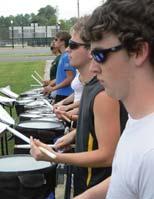

794-0146 School
President-Elect
Carl Hancock University of Alabama Box 870366 Tuscaloosa, AL 35487 (205) 348-6335 chancock@bama.ua.edu
President, AOA Clay McKinney Booker T. Washington Magnet School 632 S. Union Street, Montgomery AL 36104 Clay.McKinney@mps.k12.al.us
Executive Director Editor, Ala Breve Garry Taylor 1600 Manor Dr. NE Cullman, AL 35055 (256) 636-2754 amea@bellsouth.net




Treasurer
Chris Walker Clay-Chalkville Middle School 6700 Trussville Clay Road Trussville, AL 35173 (205) 379-3100
christopherwalker@jefcoed.com
President, Elem/Gen


















Beth Davis Somerville Road Elementary 910 Somerville Road SE Decatur, AL 256-559-020735601
brdavis2@crimson.ua.edu
Garry Taylor, Editor & Advertising Manager 1600 Manor Dr. NE Cullman, AL 35055
(256) 636-2754












amea@bellsouth.net


President, Higher Education
Lori Ardovino University of Montevallo Station 6670 Montevallo, AL 35115 (205) 666-6670 ardovinl@montevallo.edu
Recording Secretary Carla Gallahan 212 Smith Hall, Troy University Troy, AL 36082 (334) 670-3502 School cgallahan@troy.edu





President, Collegiate AMEA Stephanie Pesto University of Alabama (256) 655-1432

sapesto@crimson.ua.edu
Collegiate MENC Advisor Moya SamfordNordlundUniversity School of the Arts/ Division of Music 800 Lakeshore Drive Birmingham, AL 35229 (205) 726-2651


minordlu@samford.edu
ADVERTISING & COPY DEADLINES
Fall - August/September (Back to School) issue: July 15
Winter - October/November (Conference) issue: September 15



Spring - February/March (All-State) issue: January 15
Summer - May/June (Digital Only) issue: April 15
Unless otherwise indicated, permission is granted to NAfME members to reprint articles for educational purposes. Opinions expressed in this publication are not necessarily those of AMEA or the Editor. All announcements & submissions are subject to editorial judgement/revision.The Alabama Music Educators Association is a state unit of NAfME: The National Association for Music Education, a voluntary, nonprofit organization representing all phases of music education in schools, colleges, universities, and teacher-education institutions. Active NAfME/AMEA membership is open to all persons engaged in music teaching or other music education work.
Ala Breve is published four times a year (August, October, February & May) by the Alabama Music Educators Association. Subscription for members is $4.00 per year as part of annual NAfME/AMEA dues. Subscriptions for non-members is $15.00 per year. Bulk rate postage paid at Dothan, AL.
AMEA Governing Board 2012-2013
ala breve 5 ala breve the official publication of theAlabama Music EducatorsAssociation August/September 2012 w a m g w b o Back to School Issue
Sara Womack, AMEA President

Goalposts
With the beginning of each school year, comes an opportunity for growth. The enthusiasm from stakeholders is unlike any other time and the potential for success is limitless. However, this progress can be misplaced unless goals and strategies are developed. Arnold Glasgow stated, “In life, as in football, you won’t go far unless you know where the goalposts are.” This is especially relevant in the world of education, where objectives, standards, and plans are routine. What goals have you established for your program in the coming year? How do you plan to accomplish those goals? What tools do you need to make your vision into a reality?
Just as we establish music education goals at the beginning of the school year, I have established a few goals as I begin my twoyear term as president. These goals are living and will change throughout my term as the governing board works to determine our needs and wants. The board, including newly elected President-Elect Dr. Carl Hancock, Treasurer Dr. Chris Walker, and Secretary Dr. Carla Gallahan, will be working to develop a plan to accomplish these goals. Below, targets for the coming years are listed, along with tasks to accomplish those goals. If you have any additional areas in need of improvement, please share them with yor division president or contact me at sara@music.org.
Increase membership of underrepresented populations
Make connections to younger members and potential members through social opportunities and recognition
Build affiliations with the music industry in Alabama through membership opportunities and acknowledgement
Reach out to retired members by offering opportunities to share their expertise
Strengthen relationships with current members
Gain data regarding wishes and necessities of members through a survey of Alabama music educators
Develop a technology plan for online data management, event registration for division events, and social media functions
Offer innovative, engaging, and relevant professional development (e.g., the Alabama Symphony Orchestra performance with Gabriel Kahane at the 2013 In-Service)
Plan for the future by updating the strategic plan, officer and committee chair handbook, and bylaws to reflect changes in needs and policies
Intensify advocacy efforts with a strategic design


Develop a list of “asks” and a strategic advocacy plan with innovative ideas (e.g., the AMEA “Music Matters” advocacy video) through data analysis and a survey
Connect with other arts organizations in Alabama to strengthen our advocacy efforts
Take Note of National News
In late June, Executive Director Garry Taylor, President-Elect Dr. Carl Hancock, and I represented AMEA at the NAfME National Leadership Assembly in Baltimore. Newly installed President Nancy Ditmer outlined goals for our national organization. Recent news include the following stories:
NAfME is restructuring the professional development opportunities. In the fall of 2013, a national music education conference will be held in Nashville, Please look out for more information on this exciting, new format!
Peruse the new NAfME website at nafme.org. The navigation and ease of use has been greatly improved. Some areas are still migrating from the old site. If you see an area that cannot be accessed, please contact NAfME.
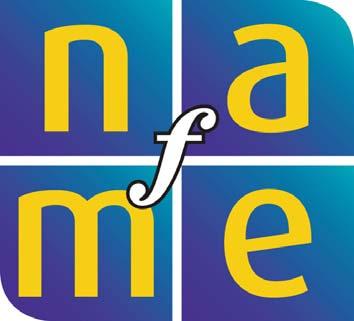
Groundswell, NAfME’s comprehensive resource for advocacy, can be found at advocacy.nafme.org. Advocacy how-to guides, webinars, and the “Make Your Case” database, a searchable repository of facts, statistics, quotes, and anecdotes, are available to help in program advocacy.
The Common Core Standards for Arts Education are currently under development. NAfME’s immediate past president, Scott Shuler, is part of the leadership team that is coordinating the progress. Visit nccas.wikispaces.com for more information.
Our national association staff is eager to help with any matter. Do not hesitate to contact them with any questions or concerns.
6 August/September 2012
30
















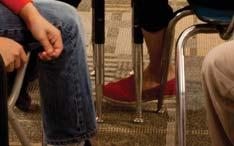
















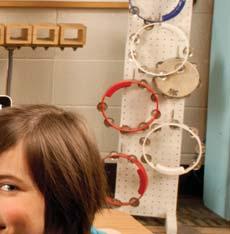




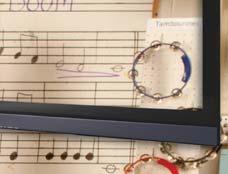









DVD










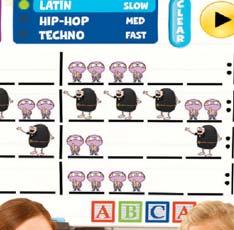





















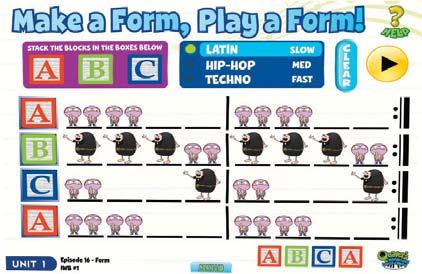


ala breve 7 © 2012 QuaverMusic.com, LLC HUNDREDS of Interactive Whiteboard Activities Eye-catching resources that grab students attention and encourage participation! Kid’s Website at QuaverMusic.com!
students!
Teacher Admin Panel Issue song-building assignments within the Kid's Website, assess work, manage class lists, and more! iPad Apps For use by teachers and students! Coming Soon! Available Now!
Music-making fun for each of your
Many activities are free, including song building activities, so sign-on today!
TV-Quality
You and your students will love our episodes on Music Theory, Instruments & Ensembles, Composers & Music History, and Music Styles! Includes Teacher Guides and resources aligned to National Standards that make lesson planning a breeze. Episodes Customize your curriculum with our teacher-friendly 21st Century resources. Check it out at QuaverMusic.com/Preview 1-866-917-3633 info@QuaverMusic.com Facebook.com/QuaverMusic QuaverMusicBlog.com
John Cooper - President, Alabama Bandmasters Association
As we begin a new year, I believe it is helpful to reflect on our goal as music educators. So often our primary mission is obscured by our smaller goals (recruiting a new class of beginners, superiors at contest or festival, that big trip, etc.) or by our daily objectives (booster meetings, collecting fundraising money, paperwork, paperwork, paperwork, etc.).
Our primary mission is to increase the understanding of music in our students. Our smaller goals should all align to that mission. Our daily objectives should also align to that mission, or we should work to organize and minimize daily objectives that do not directly feed our mission.
A new resource is available on the website (www.alabamamea.org/bandmasters) for all directors, but especially for new directors. The Phi Beta Mu Band Director

Alabama Jazz Chair
Randall Key
I hope each of you had an outstanding summer break and feel reenergized as you embark upon a new school year. I would like to extend my gratitude to each and every band director who has encouraged students to submit auditions for the All-State Jazz Bands. Last year over 130 students submitted auditions for the All-State Jazz Bands and 60 were selected. Almost half of the students who submitted auditions were selected to participate in the All-State Jazz experience. I would also like to extend a special invitation to each director to encourage student participation in the auditions. We hope to sustain three bands for years to come which means audition participation must continue to grow.
All-State Jazz audition material will be available in August. Please check the AMEA/ABA website for all information concerning auditions. The deadline for registration and audition recordings will be November 2nd.
Planning Guide provides directors with a month-by-month list of important items. It includes reminders – like the need to begin discussing All-State auditions months before the registration deadline – and suggestions to avoid pitfalls – like checking the date for Prom before scheduling your spring trip! I would encourage all new directors to print out a copy, and start making notes.
I believe that our Summer Convention was a success. I would like to thank the District Chairmen and Vice-Chairmen for their work, as well as the members of the Music Selection Committee. These groups work both before and after our Summer Convention to complete their responsibilities. Our clinicians reminded me that, even after 24 years as a band director, I still have so much that I can learn. Susan Smith, Nathan Garner, Ken Ozzello, Randall Coleman, and Larry Marchese all did a great job. Our Wednesday evening social was provided by Frank Godfrey and Jeff Thurber at
A Note

Dear Band Directors,
Demoulin Uniforms, Ron Mallory at Art’s Music, Wayne Broom at AWB Apparel, and Roland Mouchette at Mouchette Enterprises. This group of supports, as well as Carl Major and the Foley HS Steel Band, provided us with a wonderful evening and we wish to thank them all. Finally, Scott Thompson and Stanbury Uniforms provided our Coffee Service each morning. While I’m not a coffee drinker, I noticed than many of you were very appreciative of this contribution. If you were unable to attend this year, I hope that you will make plans to attend next summer.
Finally I would encourage you to be involved in your district meetings and district decisions. Support your district chairmen by returning registration and paperwork materials on time. In other places in this publication you will read of the plans that are already being made for the Alabama Music Educators Association Conference in January. Don’t miss the opportunities that this conference provides to learn, to listen, and to build friendships.
to Band Directors from AOA President Clay McKinney:
I am pleased to announce an exciting change to our All-State Festival in 2013. For as long as we have had All-State Orchestra our top group has been a full symphony orchestra and the collaboration between AOA and ABA has been wonderful. For the first time ever, Sinfonietta, our middle group, will include winds and percussion. The new name of this orchestra will be Sinfonia. We recognize the need to expand the opportunities available to your students and increase the experience of symphonic orchestral playing in the state. What I am most proud of is that our students have been the catalyst for this change. Because of the growth you helped create and continue to be a part of, this exciting opportunity is now a reality.
Your students will not want to miss this. The conductor for this program will be Maestro Brandon Keith Brown. Please read about him under the conductors tab on our web site www.alabamaorchestra association.org. He has selected wonderful music including Dance of the Tumblers by Rimsky Korsakov, arranged by David Stone, Two South American Tangos, arranged by Merle J. Isaac, Scherzo Movement IIIfrom Symphony Number 7 by Anton Bruckner, arranged by Vernon Leidig, Sheep May Safely Graze by J.S. Bach, arranged by Lucien Cailliet and Russian Sailors Dance by Gliere, arranged by Belisario Errante. We are excited to increase the presence of your wonderful talents at the festival through this new ensemble. We will need your students more than ever as we are doubling the number of winds and percussion at AOA All-State. The program for the Festival Orchestra will also be something your students will not want to miss. The Festival Orchestra will be performing The Russlan and Ludmilla Overture by Mikhail Glinka, Finlandia by Jean Sibelius, the world premiere of the winning piece from our 2013 composition contest and the final movement to Symphony No. 9 “From The New World” by Antonin Dvorak.
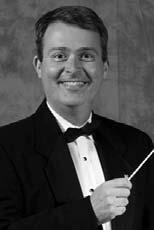
For those who may be unfamiliar, I want to explain our audition process. All band students age 10 and up are invited to audition for All-State Orchestra for placement in either the Festival Orchestra or the Sinfonia Orchestra. Students audition in their district but there are no district quotas. Students are accepted based on ability compared to their peers from around the state. Just as in the past, there will be one audition and one audition fee for band students. The bulk of the audition material will consist of excerpts from the Festival Orchestra program. The one slight change from previous years is the addition of scales and arpeggios to the audition. Students will be ranked according to their ability and placed in either the Festival Orchestra or the Sinfonia Orchestra, respectively.
Thank you for all your great musicianship and dedication. If you have any questions please do not hesitate to contact me. We look forward to seeing you and your students at the 2013 All-State Orchestra Festival!!
8 August/September 2012
“I am so excited to use Quaver’s lessons as the centerpiece of my curriculum next year.”







































Donna Berg – Darien Elementary, Delavan, WI





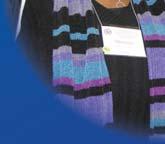








































“I can’t tell you how much we love it! The kids are so excited about it. I’ve been teaching for 29 years and can’t wait to get to school each day to do Quaver. Thanks so much for this most excellent program!”
Sherri Stoddard Thompson Jefferson Elementary, Shawnee, OK

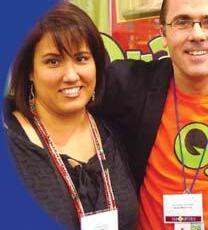


“I love the Quaver Quizzes that can be used after each episode. They are great to use as a formative or summative assessment. It has been such a refreshing way to introduce, enhance, and assess core content! My students love Quaver’s Marvelous World of Music!”









Lisa Hussung – Rich Pond Elementary Bowling Green, KY


BJ Bany – Continental Elementary, Continental, OH





















“My students talk about Quaver all the time! Now I have kids quoting music history facts to me – with genuine enthusiasm! They are learning so much faster and retaining concepts longer because of Quaver.”

Penelope Campbell – Willbern Elementary Houston, TX









“Quaver Music has been a huge impact on my music classes.”
Check it out at QuaverMusic.com/Preview ™ ©2012 QuaverMusic.com, LLC To see more teacher comments in detail go to QuaverMusic.com/WhatTeachersSay 1-866-917-3633 info@QuaverMusic.com Facebook.com/QuaverMusic QuaverMusicBlog.com ala breve 9
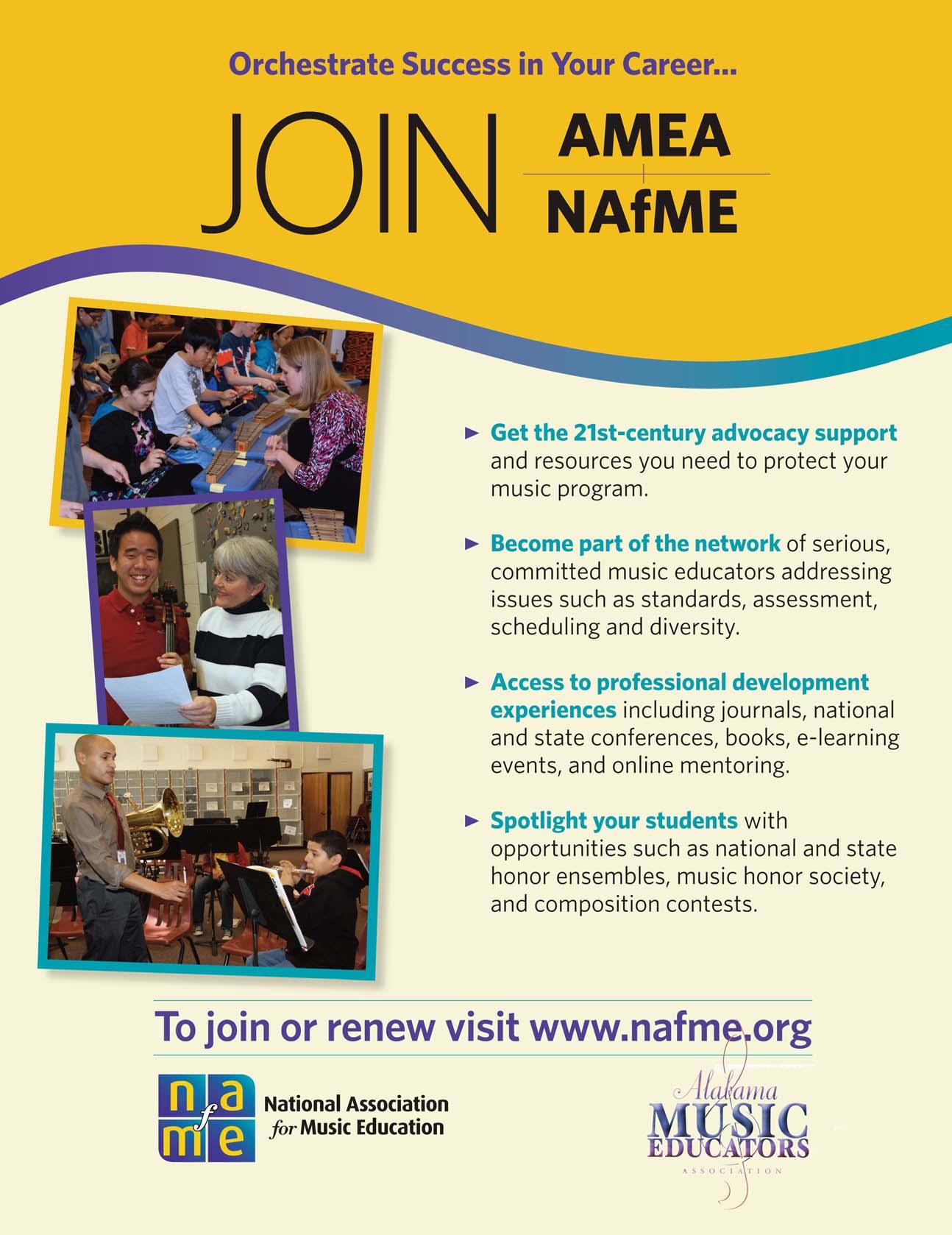
10 August/September 2012
Lori Ardovino - President, Higher Education Division

As August approaches, I’m sure that all of you have been busy in preparation for a new semester. Each year is a challenge and an adventure in providing good teaching. As you know, this will always depend on what we teach and how we teach it. I wish you all a most excellent year.
I am honored to have been elected President of the Higher Education Division. I am also honored to have Dr. Jim Zingara, Professor of Music, UAB serving as Secretary/Treasurer. We will serve our offices to the utmost of our abilities.
Once again as part of AMEA’s 2013 Conference, the Higher Education Division will hold its annual recital. This year’s recital will focus on chamber music that is suitable for teaching college ensembles. We welcome new works as well as “warhorses”. Ensembles of all kinds are encouraged to submit an application. This is an excellent way to represent your school. My hope is to have a wide representation of as many of the universities as possible. I will be sending an email to each University Department of Music to solicit members’ participation. In
order to perform, please make sure that your NAfME membership is current. We ask that each group selected to perform limit your selection to no more than 8 minutes. This will allow us to have more groups perform during our 45 minute slot. Slots are limited so the first to respond to me will be the first to fill a slot.
As part of the 2013 conference, we would like to once again feature small ensembles in the many lobbies of the Convention Center in between events. If you have an interest in having a group perform, please find a lobby performance application on the conference page of the AMEA website. November 15 is the deadline.
I have taught in higher education for twenty-six years. During that time I have been asked these questions: “Why did you decide to teach? Why did you choose higher education?” As we all know, starting a career as a college music professor requires hard work and firmness of purpose. Becoming a professor bestows one a sense of achievement and selfdetermination. The rewards are many, such as surrounding yourself with your passion
for music. For me, seeing the progress that my students make, seeing the leaders they become are gifts that can be compared to nothing else. Granted, there are trials and tribulations, but not a day has gone by where I doubted my career choice. I hope that what we as professors in higher education do leave our students with a life-long impact. Higher education improves an individual's quality of life. It is our job to help young music educators obtain their goals and improve their quality of life. “Music education opens doors that help children pass from school into the world around them — a world of work, culture, intellectual activity, and human involvement. The future of our nation depends on providing our children with a complete education that includes music.” — Gerald Ford, former President, United States of America
As professors in higher education, we must continue to inspire, motivate and to stimulate the minds of our future music educators.
2013 AMEA In-Service Conference
Quick Facts
(The October issue of Ala Breve will provide complete details of the conference, including the schedule, performing groups, clinicians, etc. This quick guide is provided in advance for your convenience.)

Dates: January 10-12, 2013

Location: Renaissance Montgomery Hotel and Convention Center
Special Performance: Alabama Symphony Orchestra with featured soloist Gabriel Kahane, Friday evening, January 11.
Keynote Speaker: Composer and singer-songwriter Gabriel Kahane, Friday, 10:30 am.
Lobby Performance Applications are due by November 15. See the AMEA website for the form FAME applications are due by December 28. See the AMEA website for the form Pre-Register on-line (www.alabamamea.org)
Or, print and mail the pre-registration form on page 19 of this issue. Reserve a room at the conference rate: Click on the link on the main page of the AMEA website. Or, call toll free: 800-266-9432
Check back often for conference updates at www.alabamamea.org/conference
ala breve 11
Give and you will get!





It is with great humbleness that I greet you as your new president of the Alabama Vocal Association. When I agreed to be put on the slate of officers as president-elect, I had no idea how much time and effort this position would take. Oh well, here we go…








I believe that the officers and chairs of the AVA board are an awesome group of people. We work together to try and serve, first of all, the students in our choral programs, followed by the directors in the membership, and finally to promote choral music in the state of Alabama. Each of these folks gives tirelessly their time and talent to achieve this level of service. We don’t always agree, but we do agree to disagree. There are two very special people that have helped me enormously throughout this transition process from president-elect to president. Jane Powell and Pat Blackwell have tried to keep me straight and true to the task of president. I could not perform this job without them. Thank you Jane and Pat!
I always try to instill the idea of, “You only get out of something what you are willing to put into it”, be it your family, your faith, your job, or your program. The more effort and time that you are willing to give and spend with each of these areas is directly proportional to the amount of love, blessings, and returns that you receive from your hard work. AVA is a family of varied types of people and personalities that will reward you if you are willing to work at it. It is a SERVICE organization. None of the people that serve you get paid (with the exception of the Executive Secretary) to do everything they must do to keep this organization running smoothly. It is an act of LOVE. It is truly a privilege to serve with the membership and board of AVA. So, be kind to your leadership and treat them with respect and dignity. They are in this for you! We welcome the new members of the AVA Board. They are Michelle Reburn from District I, Cathy Spence from District IV, and James Kendrick our new web master. We also welcome back Brent Coleman from District III.
This organization allows the students and directors to create some of the most beautiful art that can be created. From the fall or holiday concerts, All-State


Show Choir, All-State Choral Festival, State Choral Performance Assessments, or just the everyday “grind” in the classroom. Each of these opportunities allows us as directors to impart, instill, and create something that will remain in the students’ lives forever. That is truly a daunting responsibility. I know that all of you do not have the perfect situation in which to perform this task, but as music educators it is our responsibility to “keep plugging along” in our different venues to try and give to the students what they deserve. Take advantage of all of the workshops and conferences that AVA and AMEA offer you to make you a better teacher.
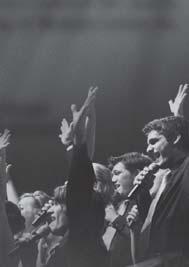
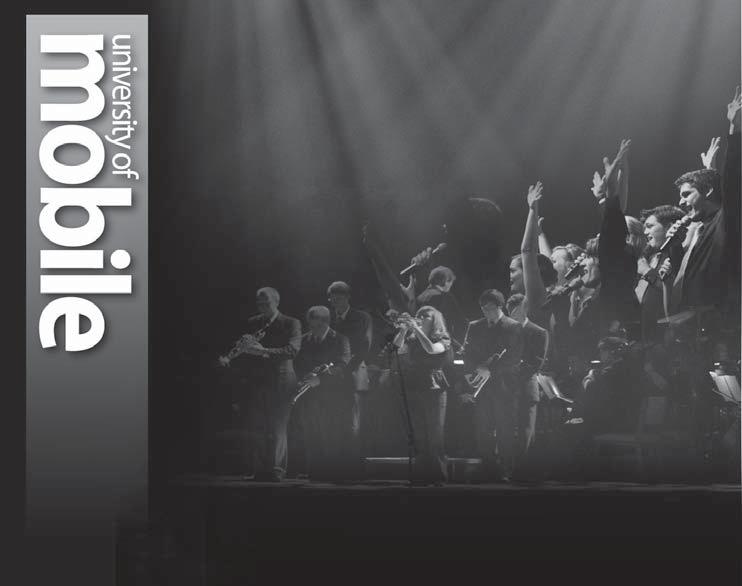
If you desire a university that prepares you to make a difference in today’s culture, UMobile is for you!

center for performing arts



This year’s Fall Workshop will be held September 7-8 at Vestavia Hills Baptist Church in Birmingham. Thanks to Terre Johnson and his church for their generosity to host this event. We will have Dr. John Flanery from the University of Southern Mississippi as our guest clinician. He will enlighten us on his efforts and ideas to accommodate the male changing voice and instruct us in ways that we might recruit more men into our choral programs. We will also have a “Tried and True” reading session that will introduce or reintroduce some of our favorite and functional choral pieces. There will also be the traditional reading sessions of the All-State music. AVA is making available packets of the All-State music so that you may purchase those for the reading sessions at Fall Workshop. This can be included in your registration. You will receive flyers in the mail about how to accomplish this from Pat Blackwell. Since this was a handbook rewrite year, we will also be voting on many changes to the handbook and proposals from the membership. Visit our website, www.alavocal.org, and use it. You will receive newsletters and information from your district chairs in the very near future. Look over these carefully. There is a lot of new information with changes to the way we have done things in the past.

Finally, the secret to happiness is to do all the good you can, by all means you can, in all the ways you can, in all the places you can, at all times you can, as long as you ever can! Have a GREAT year of Choral Music.
 Jody Powell,- President, Alabama Vocal Association
Whether you sing in the choir, dance in a musical theater production, play an instrument in a band, have a passion for opera, or lead worship for your church, the University of Mobile Center for Performing Arts has the program for you!
Jody Powell,- President, Alabama Vocal Association
Whether you sing in the choir, dance in a musical theater production, play an instrument in a band, have a passion for opera, or lead worship for your church, the University of Mobile Center for Performing Arts has the program for you!
To
12 August/September 2012
The course of study is music - the four-year journey is the real education!
schedule an appointment to audition: cpaauditions@umobile.edu or call

ala breve 13

14 August/September 2012
What are the unique qualities of human beings? Human beings reason, seek relationships, communicate, and make music. Music making is a part of every known culture. Estelle Jorgenson posits, “Without music education, it would be impossible for each social group or society to sustain itself and replenish its supply of composers, performers, and listeners who understand the significance of musical events and can participate meaningfully in the occasions of music making.” Jorgenson continues her argument by expanding the definition of music and music education. People learn and participate in music in various ways: formally and informally. Music educators are included in that broad definition; therefore, music educators play a critical role in society. Music educators assist people in developing one of the unique characteristics of human beings, music making. You, as a music educator, are important.
Such thoughts are worth consideration as summer concludes and the school year approaches. Music educators allow students to “explore, affirm, and celebrate one’s link with the great pattern which
connects the whole living world.” Therefore, we have the responsibility of leading our students to learn the music of our own culture, as well as the music of other cultures, and to discover the relationships between those musics, cultures, and people. Instrumental music, opera, jazz, choral works, folk music, and pop music are just a few of the genres music educators might explore with our students. Students need the opportunity to improvise, create, sing, move, play instruments, read, notate, listen, and much more. The content of the elementary music program is vast. However, the practical ways to approach the content is limitless. Consider your value to society. Take a deep breath and let your creativity flow. The children of Alabama will be enriched as human beings because of you.
The Elementary/General Division of Alabama Music Educators is here to support your efforts this year. There are opportunities for professional development planned for September and January. Please make arrangements to join other music educators in our state for these fun and informative events. There
is strength in numbers: the leadership of AMEA is encouraging every music educator in the state to join the organization this year. Please encourage those teachers in your district who are not members to join. The leaders are full of vision, energy and are willing and capable of leading this organization to accomplish great things for our members and students.
Best wishes for a fulfilling year with your students.
Jorgensen, Estelle R. In Search of Music Education. Urbana, IL: University of Illinois Press, 1997.
Small, Christopher. Musicking The Meanings of Performing and Listening. Middletown, CT: Wesleyan University Press, 1998.
Save the Dates
September 28, 2012 Elementary Music Festival, Samford University, Rollo Dilworth Conductor
September 29, 2012 Joint AMEA/AOSA Fall Workshop, Deer Valley Elementary, Rollo Dilworth Clinician
November 14 – 18, 2012 AOSA Conference St. Louis, MO
January 10 – 12, 2013 AMEA Conference, Renaissance Montgomery Hotel and Convention Center



Beth Davis - President, Elementary/General Division
ala breve 15
Dear AOA,
It is great to come to you at this time of year to announce this year’s upcoming All State Festival Events.We have moved the AOA All State information to this issue in order to get it to all of you before the audition process begins. A big thank you to Garry Taylor, Executive Director of AMEA, for helping us with this. Please spread the word after you read so that we don’t miss anyone. We have a lot more orchestra teachers and students in the state now and we want to make sure they know about All State. As always, you may also point them towards the website www.alabamaorchestraasociatin.org.

We are most excited this year to announce the expansion of the Sinfonietta String Orchestra to be a Symphonic Orchestra. The new name of this ensemble will be the Sinfonia Orchestra and will include Strings, Winds, Brass and Percussion. The AOA recognizes the need to expand because of the talent and growth of our string students. They have come a long way and given all of us much to be proud of. Our organization also recognized the need to give more opportunity to our very talented winds, brass and percussion students while at the same time raising up more of these students and prepare them to play at the Festival Orchestra Level. Conducting the inaugural year of this group will be Brandon Keith Brown. Maestro Brown has distinguished himself as one of the countries leading young conductors. We are excited to have him and excited about the program he has selected. The program For Sinfonia will be Dance of the Tumblers by Rimsky Korsakov arranged by David Stone, Two South American Tangos by A.G. Villoldo and Matos Rodriguez arranged by Merle J. Isaac, Scherzo Movement III from Symphony No.7 by Anton Bruckner arranged by Vernon Leidig, Sheep May Safely Graze by J.S. Bach arranged by Lucien Cailliet and Russian Sailor’s Dance by Reinhold Gliere arranged by Belisario Errante.
As always the programming for the Festival Orchestra will be outstanding. Steven Byess will be leading the Festival Orchestra in a performance of Overture to Ruslan and Lyudmila by Mikhail Glinka, Finlandia by
Jean Sibelius, IV. Allegro con Fuoco Symphony No 9, “From the New World” by Antonin Dvorak and the world premiere of the winning piece from our composition contest. We are also very excited about our conductor for the Consort Orchestra, Dr. David Eccles, who comes to us from Vandercook College where he is director of String Music Education and Orchestral Activities. Dr. Eccles is a frequent guest conductor all across the country so you definitely don’t want to miss this experience. You can read more about him and our other conductors at the AOA website.
To our winds, brass and percussion teachers, please check our website for specific instrumentation, audition excerpts and audition procedures. Please also see a letter published in this edition of the Ala Breve detailing the audition procedures for Winds Brass and Percussion students for All State Orchestra. We absolutely cannot make this a success without your students and your support. If you have any questions at all about All State Orchestra or any of the audition or registration procedures, please do not hesitate to contact me. musicalistening@gmail.com

Also new this year will be more scholarship funds available to students for attendance at the festival. If you are in need of financial aid please make use of these funds. The deadline is very strict, October 15th, for all financial aid applications. Please get those application in on time if you need assistance.
Back again this year will be online registration for auditions and festival registration at our web site www.alabamaorchestraassociation.org. Here you will find all the latest information for registrations and anything pertaining to AOA. Thank you to everyone especially our brilliant Webmaster Kenyon Wilson. Last year was our first year with online registration and it went off with out a hitch. We know though that there are things we can do better and we want to make the process as smooth and seamless for you as possible. If you have suggestions as to how we can improve the registration process or have comments about your experience with it last year please email those to me.

For interested exhibiters here are four potential exhibit locations in the Moody Music Building during the Festival. Exhibitors may set up any time after 4:00 on Thursday, February 7 and remain until the concert is over on Sunday afternoon, February 10. This time window is the available time, but exhibitors are not required to be present at all times and may choose to
use any periods within this time frame. There will be no reduction in fee for reduced usage. The AOA President, Clay McKinney, must receive all requests for exhibitor space via email at musicalistening@gmail.com before January 31, 2013. Two prime locations are available in the lobby. There is a fee for each spot and use of space includes up to three 6’ tables. A $100 deposit is required to reserve a lobby spot. Two other locations in the building, closer to rehearsal rooms but with less space, will be made available at $100 each to the first two requestors. Use of these spaces includes one 6’ table each. For more information, please visit our website and click on the 2013 festival link.
To all of our string teachers out there, I want us all to plan on attending the annual AMEA conference in January at the Renaissance Conference Center in Montgomery, January 10-12 2013. I know as orchestra teachers and performers we are busy teaching all week and playing many performances in the evenings and on weekends. This is our AOA, our voice in the state. We have a growing presence in our state and therefore a responsibility to continue the health of that growth. I cannot stress enough how important it is that you come and be apart of your professional organization. Let your voice be heard and your presence known. I am giving this reminder now because I know all of us are setting up our calendars and budgets for the year. Please make room in both for the conference. Our general business meeting during this time will be on Friday January 11th 3:15-5:30 in the conference center. Please make plans to attend. Back by popular demand, is the reading session sponsored by J.W. Pepper. We will read through several titles for string orchestra so please bring your instrument to the conference. After our business meeting we will raffle off the titles. Entry in the raffle is free but you must attend the meeting to submit an entry. Very special to the conference this year will be the performance of the Alabama Symphony in the Montgomery Performing Arts center Friday evening January 11th. So, come to the meeting and see everyone and stick around for the performance, it will be a wonderful evening. Thank you as always for all that you do to educate our young string players. It is pleasure serving as your president and I look forward to a fabulous year.
Sincerely
Clay
16 August/September 2012
Clay McKinney - President, Alabama Orchestra Association
Audition Excerpts Posted
Deadline to Register for an audition
August 15, 2012
September 21st, 2012
Please check your district web page for deadlines and instructions on registering for auditions!
Final Date for live auditions for all levelsOctober 14, 2012
Please check your district web page for specific date of audition and deadlines!
All State Financial Aid DeadlineOctober 15, 2012
Videotape District Mailing DeadlineOctober 15, 2012
All State Results PostedNovember 19, 2012
All State Orchestra Acceptance DeadlineDecember 1, 2012
Begin To Contact AlternatesDecember 2, 2012
Begin mailing musicEarly December
Audition fee is $20 for first audition, $10 extra for each subsequent audition. Winds, Brass and Percussion students will have a single audition only and a fee of $20 only. Please make all checks payable to AOA. Registration fee for the All-State festival in February is $65.
Notice: We will begin contacting alternates immediately so be sure to abide by the deadline of December 1st to accept your position in your All State Orchestra.
Reminders:
December 1st is the deadline for all Registration info and Registration payments to be submitted.
We will begin contacting alternates and mailing out music immediately after the deadline.
Please make sure students register by December 1st so that they may receive their music as soon as possible.
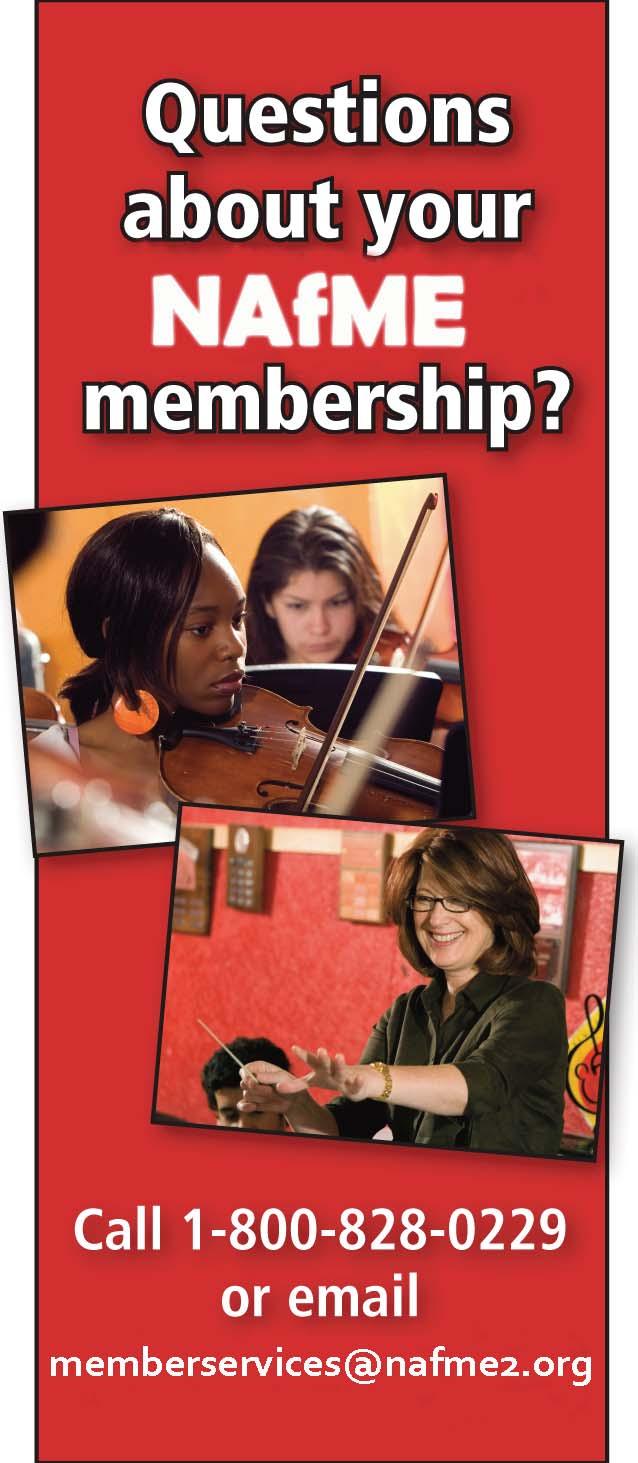
All Festival events will take place in the UA Moody Music Building.
If you decline the invitation to come to All State AFTER mailing your acceptance letter, you will not be allowed an audition the following year. (With the exception of medical emergencies)
Check in for Festival Orchestra will be from 12-2 pm on February 7, with string seating auditions upon arrival. Check in will be from 2:30-4:30 for Sinfonia and Consory Orchestras with string seating auditions upon arrival.
Festival Orchestra will have their first rehearsal Thursday afternoon from 4:30-6.
Pictures and warm-ups for all orchestras will take place Sunday February 10th from 9-1.
The Festival Concert will begin at 1 PM on Sunday February 10 in Moody Concert Hall.
Hotel Information:
The hotels for the festival are the Capstone Hotel on the campus of the University of Alabama directly adjacent to the Music Building and the Hampton Inn on Harper Lee Drive. These are the same hotels as last year’s All State. There is a block of rooms reserved for our event. We urge you to book rooms early as there are a limited number of rooms in the block. The cutoff date for the block is January 11. After this date, rooms will not be held at the festival price. The block is under the name “All State Festival Orchestra”.
Participation Requirements:
Students participating in the Alabama All State Orchestra Festival must attend all rehearsals and required activities of the festival. Failure to comply with this rule will result in dismissal from the festival without refund of any fees. If a student is unable to attend all activities of the festival, it is his/her responsibility immediately to notify his/her District Chair so that an alternate may be given that place.
INFORMATION GUDE 2013 ala breve 17
Alabama All State Orchestra Festival February 7-10, 2013 University of Alabama, Tuscaloosa
Alabama All State Orchestra Festival February 7-10, 2013 University of Alabama, Tuscaloosa All-State Clinicians
Festival - Steven Byess
The extraordinarily varied career of Steven Byess takes him not only to the stages of symphony orchestras and opera companies, but also to the stages and genres of Broadway, jazz and television. He is a dynamic conductor and has been hailed by critics as "masterful and brilliant," "creating the epitome of instrumental elegance" and "a talented interpreter, able to capture the sweep of a piece without neglecting detail."
He is the Music Director of the Tupelo Symphony Orchestra, the Arkansas Philharmonic Orchestra, the Colorado Youth Symphony Orchestras, Guest Conductor for the Ohio Light Opera, and he was formerly the Cover Conductor for the Detroit Symphony Orchestra and on the conducting staff at the International Vocal Arts Institute in Tel Aviv, Israel. Mr. Byess received his Bachelor of Music Degree in classical performance and jazz studies from Georgia State University, and his Master of Music degree from the Cleveland Institute of Music, where he studied conducting with Louis Lane and Carl Topilow, bassoon with George Goslee and David McGill, violin with Carol Ruzicka, and piano with Olga Radosavljevich. He also attended the Pierre Monteux Memorial School for Conductors under the tutelage of Maître Charles Bruck. In addition to his conducting studies with Louis Lane, Robert Shaw, and Carl Topilow, he has worked under the auspices of the American Symphony Orchestra League with such noted conductors as Lorin Maazel, Zubin Mehta, Daniel Barenboim, Pierre Boulez, and Otto Werner Mueller. Mr. Byess was an assistant to conductor Robert Shaw at the Shaw Institute in Souilliac, France.
Steven Byess is a passionate advocate for the arts, much sought after for his speeches on the arts, music, music education and general education. An important community leader, he has created and organized frequent and annual collaborations with numerous choruses, chamber music ensembles, and festivals of the arts. He also wrote, co-directed and is featured in a PBS presentation entitled Count On It!, which is designed for children grades K-3, and shows the correlation of music to mathematics.
Mr. Byess was chosen by Walt Disney World Entertainment to conduct the 2000 NFL E*TRADE Superbowl Halftime show. The production had over 400 performers, including the Walt Disney World Millennium Orchestra, and international artists Phil Collins, Christina Aguilera, Enrique Iglesias, Toni Braxton, and Edward James Olmos, and was broadcast to over 900 million viewers worldwide. Byess is also
currently featured in a commercial video taping for the Starz and Encore movie channels, airing internationally. Guest conducting for 2010-2011 include the Anaheim Symphony Orchestra, the Toledo Symphony Orchestra, the Denver Philharmonic Orchestra, the Lamont Symphony Orchestra, a return to China to lead the Guangxi Symphony Orchestra (Nanning, China), a sixth U.S. tour with the Sinfonia Chamber Orchestra from Krakow, Poland, a multi-national performance of Handel’s Messiah in Branson, Missouri, and opera productions of Carmen (Bizet), Hansel and Gretel (Humperdinck), Amahl and the Night Visitors (Menotti), Evening Wind (Offenbach), The Fortune Teller (Herbert), Jubilee (Cole Porter), Cox and Box (Sullivan), Trial By Jury (Sullivan), and El Capitan (Sousa). Steven is an ardent wine aficionado, a passionate Shakespeare enthusiast, an avid motorcycle rider, and loves skiing
Sinfonia - Brandon Keith Brown Brandon Keith Brown is quickly gaining national and international attention as an accomplished young conductor. As winner of the 2011 Ansbacher Fellowship, he was selected by members of the Vienna Philharmonic to be in residence at The Salzburg Festival, where he conducted members of the Vienna Philharmonic in the Musikcamps program for children. In February 2012, Mr. Brown made his New York City debut at the invitation of Kurt Masur at the Manhattan School of Music.
Chosen by Lorin Maazel as his apprentice, Mr. Brown performed at The 2010 Castleton Festival in Virginia. In 2009, he performed in the American Academy of Conducting at Aspen with David Zinman. Solely representing the United States, he competed in Zagreb as 1 of 16 semifinalist in the Lovro Matacic International Competition, chosen from 163 applicants from 43 countries. Recently, he was invited to conduct a rehearsal for The Orchestra of the Age of Enlightenment in London.
In May 2012, Mr. Brown will compete in the Malko International Conducting Competition in Copenhaagen. Prestigious workshops and schools attended include The Pierre Monteux School, The Conductor’s Institute, The Omaha Symphony Conductor's Symposium and the Conductor’s Guild. Prominent conductors he has worked with include: James Depreist, Leonid Korchmar, Thomas Wilkins, Marin Alsop, Kurt Masur, and Gustav Meier.

Active as a guest conductor, he has conducted the Croatian National Radio and Television

Orchestra, the Omaha Symphony, the WaterlooCedar Falls Symphony Orchestra, Macon Sinfonia, the Astoria Symphony, the Manhattan School of Music Orchestra, the Orchestra Society of Philadelphia, the Yakima Chamber Orchestra, the Orchestra of the Age of Enlightenment, and various youth, collegiate, and all-state orchestras. Versatile in opera, Mr. Brown has been music director for Mozart’s Cosi Fan Tutte, assistant for Britten’s Albert Herring and studied Puccini’s Il Trittico with Lorin Maazel. Previously, he was cover conductor for the Baltimore Symphony, Assistant Conductor at the Peabody, and assistant conductor/fellow of The Waterloo-Cedar Falls Symphony Orchestra.
Mr. Brown holds a Master’s in Conducting from the Peabody Institute where he was winner of the Peabody Career Grant under Gustav Meier. Initially trained as a violinist, Mr. Brown graduated from high school at the North Carolina School of the Arts. He continued at the Oberlin Conservatory of Music and Northwestern University, receiving a Bachelor’s in Performance under Roland and Almita Vamos. He is currently Associate Conductor of the Omaha Area Youth Orchestras and Guest Conductor for the Omaha Symphony’s Mission Imagination series.
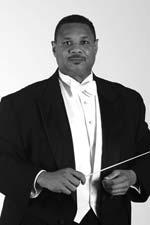
Consort - David Eccles



David F. Eccles is a native of Norfolk, Virginia and the son of a music educator. Since 1991, David has held string education positions in Virginia, Florida, and Illinois. Mr. Eccles is currently Director of String Music Education and Director of Orchestral Activities at VanderCook College of Music in Chicago, Illinois. An active conductor, cellist, and clinician, Mr. Eccles has been the music director and conductor of numerous youth orchestras including the Tallahassee Symphony Youth Orchestra, Southwest Florida Symphony Youth Orchestra, Greater Miami Youth Symphony, Jubilate Youth Orchestra, and Brevard (FL) Symphony Youth Orchestra. Mr. Eccles has also conducted many state, county, and regional honors orchestras.
Mr. Eccles is currently completing his doctoral studies at Florida State University. He holds a Master’s Degree in Music Education from the University of Miami (Florida) and Bachelor of Music and Media from Norfolk State University. His principal teachers include Elizabeth Eccles, Laurien Laufman, Ross Harbaugh, and Dr. Michael Allen. He is an active member of ASTA, MENC, and NASPAAM.
18 August/September 2012
PRE-REGISTRATION FORM
AMEA In-Service Conference
January 10-12, 2013
Renaissance Montgomery Hotel at the Convention Center
LAST NAME
FIRST NAME______________________(for badge) NAfME ID#
Please enclose a copy of your card.
Home Address: __________________________________ ____________________ ______ _______
Home Phone: ______________________________ Email: __________________________________ School Name: _____________________________________________________________________ School Address: _________________________________ ____________________ ______ _______
School Phone: ______________________________ Cell: __________________________________
Principal Division:(one only) _____ABA _____AVA _____ELEM _____AOA ____HED____COLLEGIATE
Other Division/s Affiliation:(check all that apply) _____ABA _____AVA _____ELEM _____AOA ____HED____COLLEGIATE
Please tell us if you are: _____Clinician _____Conductor of a performing group at the conference _____Retired _____Guest Performer Current Members, Clinicians, Conductors
TOTAL AMOUNT PAID $____________ MAKE CHECKS PAYABLE TO AMEA
A fee of $35 will be charged for returned checks No Purchase Orders Accepted. Check or Credit Card Only
To pre-register with a credit card go to www.alabamamea.org through December 31, 2012
************************* Mail form and check by Dec. 31, 2012 to: *********************** AMEA, 1612 Second Avenue SW, #181, Cullman, AL 35055
Important: Forms and payment received after Dec. 31 will be held at the registration desk for onsite registration. Do not send forms or payment to the above address after Dec. 31, 2012!
THANK YOU! Your conference packet will be ready at the registration desk in the Renaissance Hotel. Your receipt will be in your packet at the conference.
Please do not fill in the information below. This is for AMEA bookkeeping ONLY
(City)(State) (Zip)
(City)(State) (Zip)
Collegiate
(On-Site
Retired
Registration
Spouse*
Registration $15.00 *may not be a music teacher Non-Member
Music
(On-Site
Pre-Registration $80.00 (On-Site Registration $90.00) First Year Teachers Pre-registration $65.00 (On-Site Registration $75.00)
Members Pre-Registration $40.00
Registration $45.00)
Members
Complimentary
or Guest* of AMEA Member
Alabama
Teacher Pre-Registration $185.00
Registration $195.00)
********************************************************************************************************************************************
Membership
________________________________ Date: ____________________ ala breve 19
Personal Check # _________________________School Check # ______________________
verified and payment receipted by:

20 August/September 2012
As the summer winds down and the school year begins, I would like to thank the members of Collegiate AMEA for allowing me to be the president of this organization. I am very excited for what is in store, and I think you should be too! This year, the all of the board members are new with fresh ideas and visions for the future of the group. This year’s board members include Vincent Schneider, from the University of Montevallo, as vice president and Julia Baxter, from Samford University, as secretary, with Dr. Moya Nordlund from Samford University as our faculty advisor.
This past June, I was given the amazing opportunity to travel to Baltimore to attend NAfME’s Music Education Week. While there, I participated in a series of classes addressing the topic of teaching students with special needs music. I share this with you, because even though you may not
have a particular interest in music therapy or special education, the fact is that teaching students with special needs is something that nearly every music educator will be exposed to in some degree. The point stressed by every presenter, was that music is accessible to everybody, no matter how slight or severe a student’s special needs may be. A great resource for learning more about this is a book titled Teaching Music to Students with Special Needs: A Label-Free Approach, written by Alice M. Hammel and Ryan M. Hourigan. Dr. Hammel was one of the presenters at the conference who was extremely informative, experienced, and inspirational.
Although this was a great opportunity, you don’t have to travel far distances to have wonderful learning experiences and meet with colleagues in the field. You simply have to travel to the University of Alabama
in Tuscaloosa on October 20 to attend the annual collegiate State Summit. This is a one-day event that gives all music education students in Alabama the chance to get to know one another. You will have the opportunity to attend sessions on various topics that may not be covered in your music education classes. Plans are still being made to determine the topics and presenters, but know that it will be an extremely fulfilling and worthwhile experience. Please be making plans to attend, and I look forward to seeing you there!
Annual Collegiate AMEA State Summit - October 20, 2012 - University of Alabama
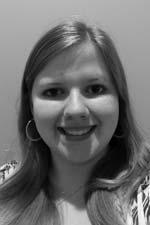
blair school of music at vanderbilt university
• Intensive professional training with a superb liberal arts education–in a city of historic Southern charm
• Internationally recognized faculty and uniquely personal student/teacher ratio–a hallmark of the Blair community
• New, state-of-the-art classrooms, studios, and performance halls–a new dimension in the learning experience
VANDERBILT UNIVERSITY
For more information:
Dwayne Sagen
Assistant Dean of Admissions
Blair School of Music
Vanderbilt University
Nashville, TN 37212-3499

PHONE: (615) 322-6181
WEB: blair.vanderbilt.edu
E-MAIL: Dwayne.P.Sagen@vanderbilt.edu


AUDITION DATES 2012/13
• Degree programs offered in instrumental and vocal performance, composition/theory, and musical arts–and a five-year Bachelor of Music/Master of Education program
• Ranked as one of the nation’s top twenty universities
 Stephanie Pesto - President, Collegiate AMEA
Stephanie Pesto - President, Collegiate AMEA
ala breve 21
Your Role in Music Teacher Evaluation
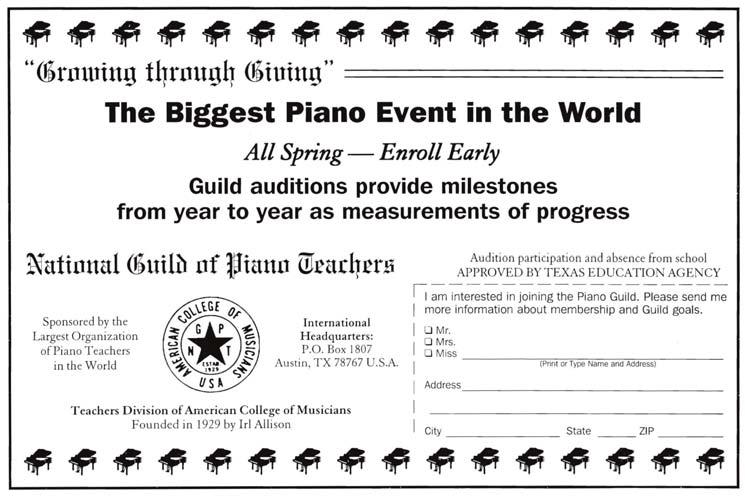 By Doug Orzolek
By Doug Orzolek
Many of the issues we face in today’s educational systems are a direct result of the call for accountability in the United States. That call is the direct result of a cry of concern about the integrity of people in our governments, businesses, sports, religious entities, and even nonprofit organizations. While we cannot easily compare the education of children to the practices of a lending institution, there are some interesting similarities.
Generally, there are three parts to any basic model of accountability:
a description of the ideals, goals, aims or objectives of the entity a list of resources needed to act on or develop those ideals, and an explanation of any consequences or outcomes related to any actions taken.
Clear and concise communication of each phase is critical to success.
The good news is that as a professional community, music educators have considerable experience in every stage of accountability as described in this model. We have learned to describe our goals and objectives through national, state, and local standards, and we are able to adapt them for application in our classrooms. We are skilled at using technology and other tools as resources to improve our work in various settings. Over the past decade, our
profession has developed and learned to implement myriad assessment tools that allow us to evaluate our students’ work and improve our own. In spite of this, we have not yet established a suitable means of reporting the learning that happens in our classrooms.
Look at What Students are Learning
Why is this sharing of what our students learn so important? As Scott Schuler notes, “Across America, policymakers are turning to the results of student assessments as a means of measuring and improving teacher performance. The best of emerging teacher evaluation initiatives push us to do better what we should have been doing all along.”1 I could not agree more with his assertions, and I believe that one of our profession’s largest goals should be establishing archetypes that present evidence of student learning in our music classrooms. Ultimately, I would much prefer to have stakeholders gauge my work on what students are learning rather than any other factor. But that means I will need to spend some time figuring out how to expound upon the amazing learning in music and related areas that’s happening on an ongoing basis in my classroom and community. You might wonder about the extent to which someone at a higher education institution should be ruminating about any of these things. But the truth is that the accountability movement is also alive and well at the college/university level, and the result is that professors are being asked two questions: What do students learn in your classes? and How do you know they have
learned it? Many discussions and seminars are being held on my own campus to help professors heed this call and, for the most part, we are working together to find solutions and sharing our results with one another.
Articulate a Clear Position
So where do we go from here? How do we help one another with this issue? If, like me, you believe that our best work starts in the classroom, then it falls on each of us to consider the implications of this crusade. First, we should each be able to articulate a clear and concise position on how we would like to be evaluated and how we should share those ideas with one another as well as those who will be judging us. Since each of us would want to be evaluated by the good work happening in our classrooms, we should be able to describe what high-quality learning looks like. We all need to develop and use carefully-designed assessments that allow us to report on our success in helping students meet standards and objectives. And since this call might require us to articulate how/what we might change in our teaching, we must all learn to reflect deeply and communicate how we will improve our work. Finally, we need models on how to report on all these things. For example, take a look at the model I developed in the late 1990s and described in the November 2004 issue of Teaching Music.2 It’s not perfect, but it might help you to start thinking about how you could do something similar in your school.
These are things that most of us already do and do well. The new part is that we must find ways to articulate and report these things to our leadership and stakeholders. But if we hope to improve the entire profession, we must be willing to share our individual work in these areas with one another. We might start by focusing on one of the previously listed ideas (for example, our home-grown assessment tools) and dispensing them to our music-educator colleagues in our school district for discussion and analysis. We could each share our personal positions on teacher evaluation via a blog on a state MEA website or discussion board. We could ask our collegiate colleagues to help find and implement models that might be applicable in our settings. We should also monitor the work of NAfME to stay on top of national initiatives that might be useful in our settings.
22 August/September 2012
Get Involved!
I view the call for accountability as a very complex, multi-faceted issue. This campaign has far-reaching effects on curriculum, instruction, assessment, teacher evaluation, professional development, policy and the preparation of future music teachers. With that in mind, the Society for Music Teacher Education (SMTE) is engaged with research, discussions, analysis, and a variety of projects that not only address the concerns related to teacher evaluation, but also those of preparing music educators to work in this educational climate. I encourage you to visit SMTE’s website (http://smte.us), where you will find links to our teacher evaluation portal as well as updates on the tremendous work being done by our Areas of Strategic Planning and Action (ASPAs). You will find that we are directly addressing many of the issues facing our profession. Please feel free to contact any of SMTE’s state or national leaders if you have thoughts or ideas about what you find there—your input and your comments are always welcome!
I am hopeful that each of you will take the time to share your experiences and thoughts with one another. We all know that the call to accountability in education is here to stay. With that in mind, I suggest that we each become more proactive in this movement and bring our best ideas together to share with the profession. Not only will it ensure that music teacher evaluation will be fair, it will demonstrate our profession’s dedication to improving our work.
Notes
1. Scott C. Schuler, “Music Education for Life: Music Assessment, Part 2— Instructional Improvement and Teacher Evaluation,” Music Educators Journal 98, no. 3 (March 2012): 7–10.

2. Doug Orzolek, “Creating a Voluntary Accountability Report,” Teaching Music 12, no. 3 (November 2004), 34–38.

A Note from the Alabama Chapter of the Percussive Arts Society
Greetings Alabama Music Education Association,
I hope this finds you all doing well and enjoying a relaxing summer. As you prepare for the upcoming school year, I want to take an opportunity to share with you all the exciting things that are happening locally and nationally with the Percussive Arts Society (PAS).
The Percussive Arts Society is the largest international organization serving the music education community in the area of percussion. Professional educators, performers, percussion students, and school libraries take full advantage of what PAS has to offer. Member services include the PAS website at www.pas.org, which contains percussion news of people and products, reviews, publication archives, and a member forum to connect with others about virtually any topic in percussion.

The Alabama Chapter of PAS is among the strongest and most active chapters in the United States. We annually sponsor the Alabama Day of Percussion, which is usually held in early March and features percussion ensembles from around the state and internationally recognized clinicians.
In an effort to better communicate with Alabama’s music educators, we will be providing educational articles, as well as information about events within our state. We are looking forward to partnering with AMEA to spread quality percussion education throughout Alabama. If I can be of any assistance, please do not hesitate to contact me.
Doug Orzolek is chair of the Society for Music Teacher Education of the National Association for Music Education (NAfME) and an associate professor of music education at the University of St. Thomas in St. Paul, Minnesota. He can be reached at dcorzolek@stthomas.edu. This article, © 2012, is printed with permission of the author.
Sincerely,
Sean Womack President, Alabama Chapter of PAS
sean@doublestoppercussion.com
(205)
317-5011
ala breve 23
Campus Connections
Colleges and universities are encouraged to submit newsworthy material and announcements for publication in Ala Breve
The John M. Long School of Music Troy University
As this new school year begins, we are once again grateful to AMEA for providing this opportunity to share information and opportunities with our music colleagues and music students across the state.
Troy University Percussion Ensemble
Wins PASIC Competition
The Percussive Arts Society has announced that the Troy University Percussion Ensemble (T.Adam Blackstock, Director) has won the International Percussion Ensemble Percussion Competition (Collegiate Division). The Troy University Percussion Ensemble will be a featured performer at PASIC 2012, which will be held in Austin, Texas in November 2012.
New Faculty
Dr. Bret Woods joins our School of Music faculty as Assistant Professor of Ethnomusicology. Dr. Woods comes to Troy University from The Florida State University where he completed a Ph.D. in Musicology (Ethnomusicology). Dr. Woods has a music education background and is a specialist in world music.
Dr. Christine Amonson joins our School of Music faculty as an Assistant Professor of Voice. Dr. Amonson comes to Troy University from the University of Arizona where she completed a DMA in Voice and Theater. Dr. Amonson is a specialist in vocal education/performance.
Annual Event Reminder 2012-13
December 6-8
Middle School Band Clinic and Honor Bands (Middle School SEUS, contact Dr. Mark Walker)
January 18-19
High School Choral Clinic and Honor Choir (Choral SEUS, contact Dr. Diane Orlofsky)
February 1-2
High School Concert Band Clinic and Honor Bands (High School SEUS, contact
Professor Carla Gallahan)
March 30
TROY University Clarinet Day (contact Dr. Tim Phillips)
April 9-12
TROY University Limelight - Music Industry Showcase (contact Professor Robert W. Smith)
Scholarship information, audition dates, and additional concert dates are listed on our website. We invite you to “visit” us at music.troy.edu or in person soon.
Auburn University
The Music Department at Auburn University is thriving and can boast of outstanding and active faculty. We offer exciting opportunities for performance and music education majors, as well as for students majoring in other fields who wish to participate in classes and ensembles. The department strives to achieve and sustain excellent standards of performance, creativity, pedagogy, research and scholarship in music. Many of our talented faculty members have achieved national recognition for their accomplishments. We appreciate the opportunity offered here by AMEA to share information with you.
I am delighted to welcome our newest faculty member for this academic year. Dr. Matthew Hoch, Assistant Professor of Voice will teach voice, diction, vocal literature, and direct the Opera Workshop. Matt comes to Auburn from Shorter University where he was on the voice faculty. He holds degrees from Ithaca College, the Hartt School, and the New England Conservatory. A baritone, he has performed as a Bach soloist with many professional organizations and holds a number of opera credits as well. Dr. Hoch is a member of several honor societies, ACDA, MENC, SRME, AMS, and SEM, and an active member of NATS, MTNA, SMT, AAM, AAUP, AGO, SETC, the International Phonetic Association, and the Voice Foundation. We are delighted to welcome him to Auburn.
At Auburn we provide a nurturing atmosphere that provides opportunities for individual attention and regular performance for students. Our department is growing and the quality of students continues to improve. Encourage your students who are interested in Music or Music Education degrees to schedule an audition through our website at: www.auburn.edu/music. Audition dates are: Feb. 9 and 23, 2013. Contact the Department of Music at 334-844-4165 if you have questions about our degree programs or offerings.
War Eagle!
AMEA Presidents Past to Present
1946Yale H. Ellis
1948Walter A. Mason
1950Vernon Skoog
1952John J. Hoover
1954Lamar Triplett
1956Carleton K. Butler
1958Mort Glosser
1960Wilbur Hinton
1962Lacey Powell, Jr.
1964G. Truman Welch
1966Jerry Countryman
1968Floyd C. McClure
1970Jerry Bobo
1972Frances P. Moss
1974George Hammett
1975Frances P. Moss
1976S. J. Allen
1978W. Frank McArthur, Jr.
1980Paul Hall
1982Lacey Powell, Jr.
1984Johnny Jacobs
1986Merilyn Jones
1988Ronald D. Hooten
1990Ken Williams
1992Dianne Johnson
1994James K. Simpson
1996Johnnie Vinson
1998Michael Meeks
2000John McAphee, Jr.
2002Tony Pike
2004Becky Rodgers
2006John Baker
2008Pat Stegall
2010Steve McLendon
2012Sara Womack
24 August/September 2012
ala breve 25 Non-Competitive and Motivational High School Middle School Elementary School Band Choir Orchestra Jazz Band Show Choir Performance in the Morning, Fun in the Afternoon 2013 LOCAL PARKS: SIX FLAGS OVER GEORGIA ATLANTA, GA Fred & Lynda Martin, Site Directors May 4, 11 See our complete brochure on the web at: www.highnotefestivals.com 877-239-3007 ARKP PA KS: 0 3 ectorsDir ynda ed & L Ly Fr GA TLANTA, TA A AT GGEOR LAGSF Martin, GIA 2 13 Sc Schoo h School Hig Motivat Non-Compe hool ol tional etitive Performanc .high www See our comple ning ce in the Mor Ba chestraOr notefestivals.c e on the we ochurre te br , Afte nd 877-239- om eb at: noon er -3007


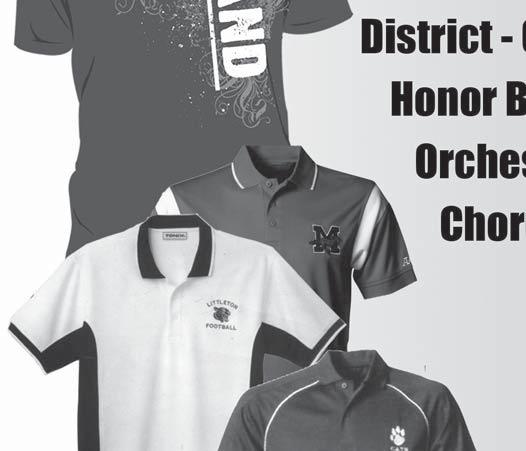




26 August/September 2012
Be Careful What You Wish For Applying
By Steve Tyndall
For and Preparing Your Ensemble for an Invitational Performance
Why Put Yourself Through This?
Applying for an invitational performance, whether it be a state, regional, national, or international conference, can be a stressful experience for the director. If you choose to apply, do so for all of the right reasons. Using an invitational performance as a teaching tool is admirable. Using such a performance as a career accelerator to pad your own personal resume is not! Applications are to be completed, deadlines have to be met, references gathered, performances recorded, parent’s organizations notified, and most importantly, your administration consulted. For a lot of director’s, making the commitment to apply can be the most stressful of all. It’s not a decision that you should take lightly. If accepted, and you don’t approach the event with the most positive outlook imaginable, it can affect your students, your program, your family, and even your personal health adversely. Everyone involved may decide “never again!” The director needs to weigh all of the pros and cons of applying very carefully. Is this the appropriate next step for your program? Meeting the qualifications described on the application itself can be a positive indication to the director that it is indeed time to proceed. But there is so much more to consider before the application process is completed and submitted. First, the conference for which you are applying should reflect of the current status of your program. If this is your first attempt at applying for any invitational performance, then set obtainable goals that will benefit your program, your school, and your young musicians.
The Application Process
While every invitational performance is extremely important, it is advisable to seek out a state conference or even a university invitation to begin this new chapter in your program’s success. Applying for invitational performances should be a tiered process. This is not meant to say that one particular performance venue is more important than another. Instead, the requirements of the performance (if accepted) as well as the logistics involved in getting your ensemble to the performance would be less involved at the state level and would offer the experience to all involved needed. This is an important step to consider.
When the decision has been made to apply and you have chosen your venue make sure that you have been a past attendee of the
conference. Often the application will address this specifically, primarily to see that you are familiar with the ebb and flow of the conference and especially its clientele. Next, before anything else, consult your school administration. Most principals will see the value of such a performance for your program and your students, but they want to be informed. Keep these two thoughts in mind: 1) Almost every application requires an administrator’s signature to be considered complete, and 2) if your administrator hears about your plans second-hand (from a parent or staff member) he (or she) is caught offguard and appears to be uninformed as to what happens in their own school. Administrators do not like this at all.
Next, all conferences and other invitational performance venues will require an audio recording, a video recording, or both. This is the make or break portion of the application…. for obvious reasons. Not only does the choice of music that you include in your recording need to be quality material performed with exemplary musicianship, the recording itself needs to a product of superior quality from superior recording equipment. Festival performances or recordings made in an acoustically complimentary performance hall are ideal. Make no mistake; using a recording studio is more acceptable. Using technology to clean, splice, or edit your recording is not a true representation of your ensembles’ true abilities and is considered professionally unethical. You will have to prepare a live performance that lives up to the digitally enhanced recording you submit. I was present at an international conference for a performance that left me feeling “how DID that group get invited?” Avoid placing your program, your students, and your career in that predicament.
In addition to the application and recording(s), you may be asked to supply references for your group and maybe even for yourself. Most applications also have a secondary form specifically for references. They might even be available on line, so that the individual can complete and send from the comfort of their own home. Choose your potential references wisely, preferably a group of your peers who have worked with and even adjudicated your ensemble. More importantly, peers who are familiar the potential of your group and feel that they will be a perfect fit the particular conference. It is perfectly acceptable to bring other professionals in to work with your group with the intent of using them as a reference. Avoid contacting folks who will serve on the
selection committee. They may be a respected colleague, a good friend, and even someone who has worked with your group in the past, but it could lead to a very uncomfortable situation. If there is any part of the reference portion of the reference will need to mail, be sure to mail or hand deliver the form along with and addressed and stamped envelope. Make the process as easy as possible for your colleagues, and be sure to formally thank them. One great way to do this is to acknowledge your references in the “Special Thanks” portion of your printed program for the event (if selected) or your program for your final performance of the season (whether or not you are selected). One last thought concerning the application process. If accepted, some conferences require an on-site informational meeting that in which you will need to plan. Your calendar will need to be cleared and finances available. Though required, the conference may not cover your costs incurred for this meeting.
Okay, so you talked to your administration, obtained a quality and unaltered performance recording, contacted references, and have checked and rechecked complete your completed application (did you and your administrator sign on the dotted line?)
. Now you wait. And as you wait, remember…..do NOT call the conference selection committee repeatedly asking if the decision has been made. This can be very annoying and will not help your cause. The application will state a date and method of notification, and you should honor the process.
And finally, the good news arrives…. your ensemble has been selected! What to do next?
BE CAREFUL WHAT YOU WISH FOR!!
The Preparation Process
Many of my colleagues and I believe that being accepted for an invitational performance is the hardest part of the entire process. I have found this to be very true, but only if your approach to the preparation process is positive and enjoyable. By enjoyable I mean for all involved, yourself, the parents, the community, the administration, and most importantly your students. The months that follow will offer a fantastic opportunity for you to provide your students with an educational opportunity like no other. More importantly, you will have the opportunity to take music to the next level and create a lifelong memory for your students. That’s really what it should be about. So before we begin discussing preparations, remember to
ala breve 27
have fun during the process. Enjoy the time you will spend with your students, because there will be a lot of time spent together.
Receiving your acceptance notification for the invitational performance will set many different wheels in motion almost immediately. Work and planning will need to begin on many different fronts, including music selection, scheduling extra rehearsals and sectionals, a meeting with your booster organization (or a full parents meeting if there is not a booster organization), and travel arrangements, just to name a few. Lets go over these in order!
First, there are some publicity issues that you need to be taken care of. Before you do anything else, get word out to your school board and superintendent. Inform them of the honor and how prestigious this performance will be for the students, the school, and the school system. After doing this need to have a responsible band booster or parent contact the local media. Provide information concerning the event, the location, the date, and especially ways that donations can be made to help make this trip a reality for the students. You might include a picture of some of the students as well as a quote or two from your school administrator.
A parent or booster meeting should be scheduled as soon as the letter of acceptance is received. Be aware that you are going to have questions concerning cost, educational validity of such a performance, is this trip required, will absences be excused, etc. Make sure that you have an agenda prepared for this meeting and email this agenda to the parents before the meeting. You should have already begun contacting and taking bids from different educational travel companies before the meeting. While you won’t have set figures, you can offer some preliminary figures. Also have some ideas for fundraising to help offset costs (and have a parent already in mind to head the fundraising effort). Consider these questions:
a) will the students have individual fundraising accounts or one lump sum divided between all members participating, b) how many fundraisers will be scheduled, c) will corporate sponsors be approached. If you as the director do an exceptional job of selling the importance of this performance, you should have parents eager to help in any way possible.
Now it is time to schedule all rehearsals, sectionals, everything that would be considered as additional to the regular school class meetings. If you received an invitation to a performance for the following year, you will have the summer to consider. I have seen many directors make the mistake of using the entire summer for rehearsals, only to have both parents and students burned out on the process
before school has even started. For both of my ensembles performances at the Midwest Clinic (2003 and 2008) I scheduled no rehearsals over the summer until the week before the new school year was to begin. I had a 2 - hour brass and percussion rehearsal, followed by a 2hour woodwind rehearsal, both on the same morning and finishing before noon. This rehearsal was nothing more than a sightreading session. The rest of the day was spent at a local amusement park with the entire band. This allowed for the band members to get to now each other better, and also served as a great kick-off for what was to lie ahead. Make your schedule of rehearsals complete, concise, and do not vary from it. This allows your parents to make whatever arrangements necessary to have their children in attendance. Be sure to include in this schedule the attendance requirements and consequences of absences. Keep in mind that life happens, and that many students, especially middle school, cannot drive and are at the mercy of their parents.
Once your schedule of rehearsals is complete, be sure to get a copy to your principal for approval. Once it has been approved, be sure to give a copy to your school secretary. She can intercept phone calls from parents (is there band rehearsal today?) and save you a lot of time and heartache on the phone! Your next move is to email a copy of the schedule to the parents, have the schedule added to the band as well as the school web sight, and even to put a hard copy in each of the musicians hands.
You should now be ready to begin your music selection and programming for the performance. First you should acquaint yourself with any genre, duration of selections, ability level, composer, publisher, total allotted performance times, or any other requirement or stipulations placed on your performance. Some venues have extensive and very specific requirements placed on performing groups and you need to be prepared to meet those requirements. Don’t be afraid to contact various publishers. If you inform them of your performance and ask if they have any recommendations of new pieces available. Publishing companies are always more than happy to help.
Give some thought to possibly commissioning a selection for the performance. If the funds are available this is a wonderful way to make a contribution to our profession!
Many directors find themselves fantasizing over what their ensemble could play at an invitational performance. Sometimes, those fantasies can cloud their judgment and could lead to the selection of literature that the ensemble cannot perform to the level that a
knowledgeable audience will expect. Be smart when you select music and program your performance. A variety of quality literature with slightly varying ability levels will be your best bet. True, you do want to choose a featured selection that will showcase the strengths of your ensemble, but there are other musical areas that should be explored. Let’s suppose that you have approximately 30 minutes for your performance. A program with five selections (possibly six) would accommodate this requirement. I have found it best to program a variety of selections to create a musically satisfying as well as enjoyable performance for the students and their audience. They are (in no particular order): a fanfare of sorts, a traditional American march (anything King, Sousa, Fillmore, Alexander, etc.), a commissioned work (if available), a guest conductor or performer selection, a light selection (Mancini works well), and your feature selection. If you are like 90% of all of the band directors around I am sure that you have saved programs from past performances that you have attended. These would be a tremendous help in your programming process.
Next item in your preparation process is planning the trip itself! Often times you can relinquish the ground work to another responsible and eager parent, but be sure to set parameters. For 18 years of my teaching experience I always used the same educational travel consultants, Kaleidoscope Adventures, for all of my travel needs. It is very important that you develop a long lasting relationship with a consultant that will anticipate your needs and concerns. Questions like “does our lodging have indoor corridors”, “will there be a security guard hired specifically for our group”, “what meals are included and where are these meals”, “what will be our mode of transportation”, “what will the total cost of the package be”, and numerous other questions will not only need to be answered satisfactorily but also anticipated by your travel representative. Pass these concerns on to your parent in charge, and stipulate a weekly meeting with this parent to discuss items achieved, items pending, and other logistics. Remember that you are ultimately responsible for the safety and well – being of your students. Do not let anything fall through the cracks, and as always, keep your administrator “in the know”!
As you near the performance date it is time to prepare a very detailed itinerary for your students and especially your parents. Be sure to secure all of the necessary field trip paperwork and forms from your district. Also, it is extremely important to have a completed, notarized medical form on every student. Be sure to make multiple copies of the entire set of Continued
page 30... 28 August/September 2012
on
Scholarship Audition Dates
February 18, 22 & 23, 2013
March 1 & 2, 2013

Ensembles
Choral

A Cappella Choir
Chamber Singers
Civic Chorale
Encore! Show Choir
Gospel Choir
Instrumental
Chamber Winds
Wind Ensemble
Symphonic Band
Marching Southerners
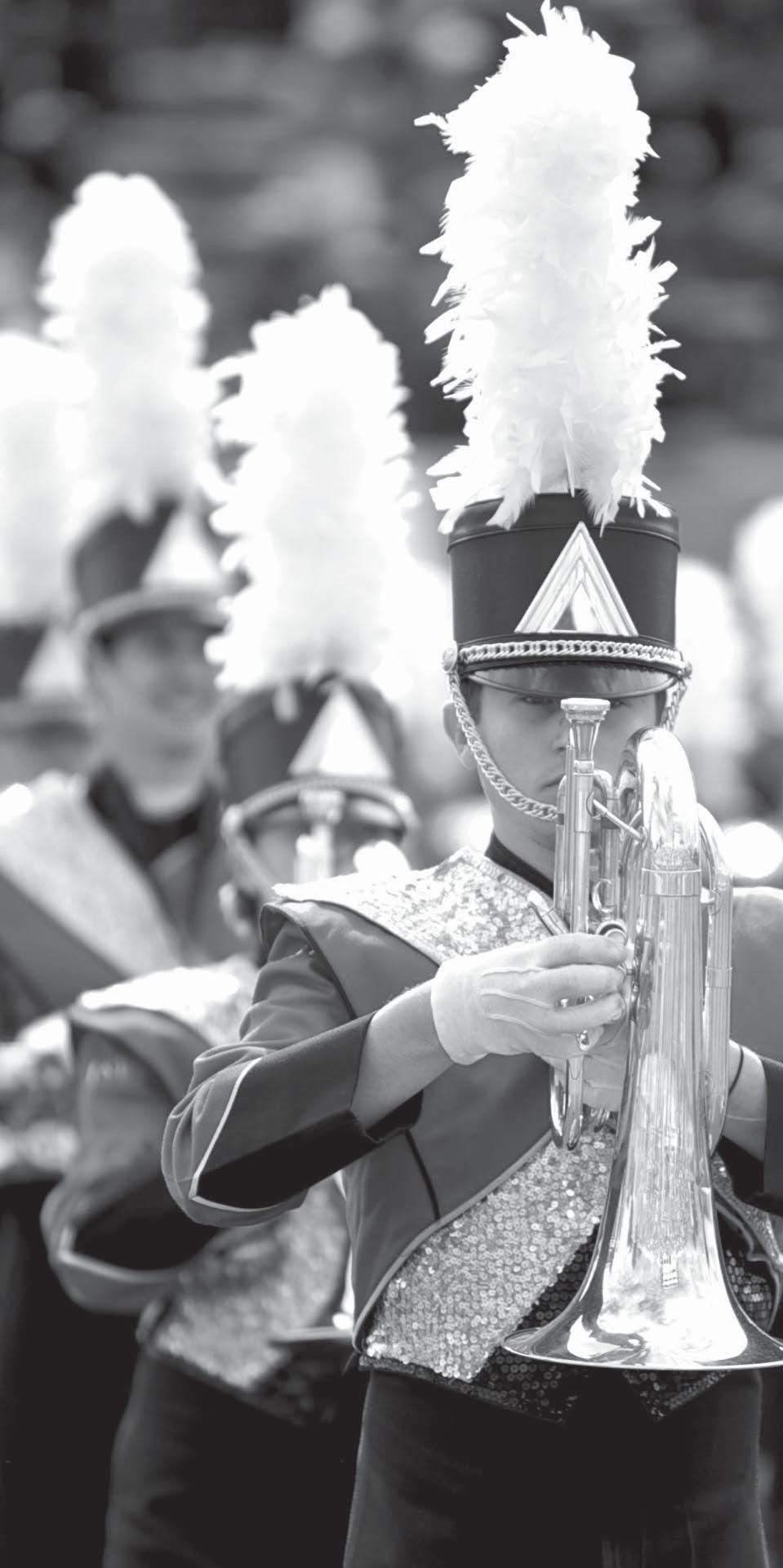
Hardcorps Pep Band
Orchestra
Jazz
Jazz I
Jazz II
Jazz III
Combos
Percussion
Percussion Ensemble
Mallet Ensemble
Steel Band
Chamber Music
Brass Quintets
Trumpet Choir
Trombone Choir
Horn Choir
Brass Choir
Flute Quartets
Flute Ensemble
Clarinet Choir
Saxophone Quartet
“Q” New Music Ensemble
Opera

Jacksonville Opera Theatre
For a complete list of degrees and concentrations please visit www.jsu.edu/music

ala breve 29
medical forms and place one set on each of the buses. The original set should be in your care for the entire trip. The itinerary needs to include everything that is planned for the students, from wake up and in rooms/lights out times, meal times, sight seeing times and meeting places, rehearsal and concert times. Try to account for every minute of the trip if possible, as the parents will want to know where their child is and what he is doing. Also be sure to include rooming lists, bus lists (if you are flying you will need to include very specific details for departure and arrival times). Include all contact information for lodging, transportation, the educational travel consultant, and especially for yourself.
As for chaperones, well, they can be your biggest asset OR the biggest thorn in your side. Often, the parent-chaperones mean well and are willing to do anything to take the pressure of the trip off of you so that you can concentrate on the performance. Sometimes the eager parent will over step their boundaries and make decisions that you have not approved. Other parents may be looking for a vacation of sorts. Choose your chaperones wisely have a chaperone meeting, and in a kind and loving way explain that you appreciate their willingness to help, but their number one priority is to keep the children safe, healthy,
and on time. I have always assigned 3 to 4 rooms of students to one chaperone, and I include this list in the itinerary packet. In addition I always chaperone one or two rooms myself. It gives me an opportunity to get to spend extra time with some of my students. Here is a checklist that could help you organize your trip and assure a successful performance.
APPLICATION:
Discuss plans with your administrator(s)
Complete entire application
Know the application deadline
Audio recording and/or video recording
Contact and collect all necessary references
All necessary signatures
Informational trip to venue (if required)
PREPARATIONS
All necessary field trip forms and paperwork
Rehearsal schedules
Parent meeting-enlist volunteer help
Music selection (familiarize with possible conference requirements)
Guest conductor or guest
performer Programming
Educational travel consultant
Student medical forms and district permission forms
Complete and detailed itinerary Chaperone meeting
An invitational performance can provide a memorable and educational experience for your entire instrumental program if approached in an organized and positive manner. If you feel that your program and your ensemble are ready for this next step, then don’t hesitate. Take the plunge and make the commitment, but JUST BE CAREFUL WHAT YOU WISH FOR!
Steve Tyndall has had bands perform at the Georgia Music Educators Association Conference, the University of Southern Mississippi Instrumental Conductors Conference, the Southeastern United States Middle School Concert Band Clinic at Troy, the Western International Band Clinic and twice at the Midwest Clinic in Chicago. He is presently retired from teaching and pursuing his PhD in Music Education at the University of Alabama, under the advisement of Dr. Carl Hancock.
ABDA 2013 Concert Festival
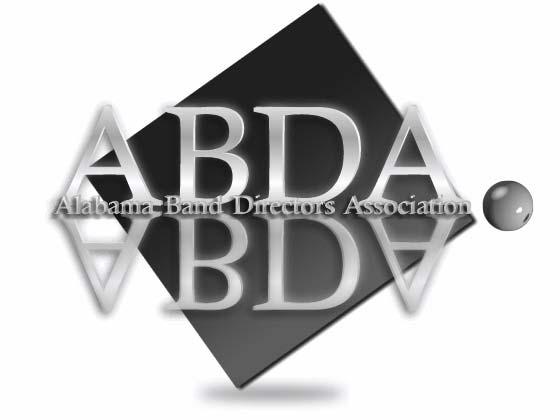
University of Alabama Moody Music Building Tuscaloosa, Alabama A Celebration of Musical Excellence in a Non-Competitive, Educational Atmosphere
December 1
Registration Deadline:
www.abdasite.org
7-8, 2013 30 August/September 2012
March

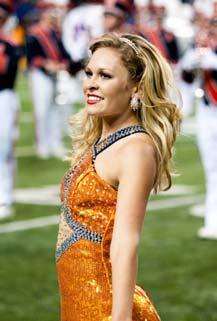
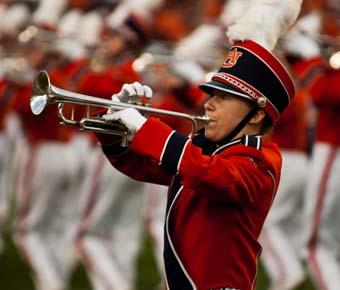


















































































Saturday,
2012
9th-12th Graders
eligible Apply Online:
Auburn University is an equal opportunity educational institution/employer. 7/2012 rev.
a Part of one of the Greatest College Game-Day Traditions in the Country , Saturda y y, Parti 9 ApplyOn Septem b er cipation Fee: Graders are e nline:bandau 15, 2012 $50 ligible burnedu Onnline: band.auburn.edu n Universit Aubur tunity educational institu ty is an oppor tion/employer rev ala breve 31
Applications Due: Friday, August 17 th
September 15,
Participation Fee: $50
are
band.auburn.edu
Be

32 August/September 2012
Rip Roarin’ Reagan
By Haley Odom
His given name is Billy, but everyone calls him “Rip.” He didn't start out in school in music, but quickly realized that's where he wanted to be. And now, after years of working to make band fun, Gadsden State Community College's band director still stands as one of Gadsden's own greatest music men.

MAKING HIS WAY TOWARD MUSIC
It may be hard for some to believe that Billy “Rip” Reagan began his college education not in music, but in law school. But it was playing the trumpet for tips that led him to his longtime career as a band director. “I was playing in honky-tonks since I was 14 years old, or ‘nightclubs,' as my mother called them, and I loved it,” Reagan says. When he started law school at the University of Alabama, he continued his practice — of music. “I got to playing in clubs down there, and when I'd go to those law classes, I'd fall asleep,” he says. “I said, ‘This is not what I want to do. I don't want to do this.' So I decided I'd be a band director.” Reagan says he was only at law school in Tuscaloosa for a couple of months in 1947 before he decided he would come play in the band that was just getting started at Jacksonville State University. He began his major in music there.
GETTING STARTED
His first music job out of college was in 1950 with the new Crossville High School Band. Reagan served one year there as band director, then also had one-year director stints in Corinth, Miss., and Albertville. With the exception of those two years, he's always lived in Gadsden. Before coming to Gadsden State, he was a celebrated band director at Emma Sansom High School for 22 years. During his time at Emma Sansom, the Rebel Concert Band took home 21 straight years of superior ratings, and the marching band won superior ratings in all of its contests. The band received many honors, including being named the Greatest Band in Dixie three times. The band played for the New Orleans Saints and the first Atlanta Falcons, and twice each with jazz singer Ella Fitzgerald and trumpet player Al Hirt. Perhaps one of the biggest achievements Reagan has shared with Gadsden was
helping start the Mid-South Marching Band Festival in 1964. Reagan says there were only three marching contests at that time — the Tri-State Band Festival in Chattanooga, Tenn., the Southeastern Band Festival in Bristol, Va., and then Mid-South in Gadsden became the first contest in Alabama.
MAKING MUSIC
Not only does Reagan help bands get their start, but his work also ensures musicians have something to play. “I have never bought a piece of music in 25 years,” he says. “I write every note of it.” From 1956 on, he wrote all of Emma Sansom's marching band music, because “you just couldn't buy any music in those days,” he says. Anything Gadsden State's 35to 40piece show band plays, he writes, too. Most recently, he's been working on “Fly Me to the Moon.” “I take the tune, put the chords down to it, then I write the notes,” Reagan says. “I write every note for the trumpets, saxophones, everything. That way you know what you've got.” Because he writes his own music, he can cater to the skill of his players. “For instance, if I've got a good trumpet section, I write for the trumpet section. If I've got a good sax section, I write for the sax section,” he says. However, a side effect of writing his own music is that not everything turns out to be a masterpiece. “In
25 years here (at Gadsden State), I've got thousands and thousands of (pieces of music),” Reagan says. “Some of them are good and some of them are not. You think you write something good, then you play it, and the kids say, ‘Did you write that? That's awful.'” Of course, he denies responsibility for those pieces. Reagan says the band plays a little bit of everything, from jazz to country/western to bluegrass. “We try to recruit all types of musicians here,” he says. After his many years as a band director, Reagan enjoys teaching young people to play, and his goal is to make band fun for all. “I try to play music that people enjoy, and not be boring,” he says. “There's nothing worse than listening to a boring piece of music. You can only play so much Bach and Beethoven.”
Reagan says overall, it's important to enjoy what you do. “I enjoy it so much that I can't wait to get to school every day. I get a kick out of what I'm doing, I really do.”
Haley Odom is a staff writer for the Gadsden Times and an alumnae of the music fraternity Sigma Alpha Iota, Delta Chapter of Troy University.. This article appeared in the July 5, 2012 Gadsden Times and is reprinted with permission.
 GSCC Show Band Director Rip Reagan at rehearsal, Monday, April 18, 2011, at the band room at GSCC in Gadsden, Ala. (Gadsden Times, Marc Golden)
GSCC Show Band Director Rip Reagan at rehearsal, Monday, April 18, 2011, at the band room at GSCC in Gadsden, Ala. (Gadsden Times, Marc Golden)
ala breve 33
The Adventures of Miss P: Student Teaching in Ireland
 By: Natassia Perrine
By: Natassia Perrine
During my years as an undergraduate in vocal performance at the University of Alabama, I became convinced that two of my life’s passions were music and travel. This realization occurred while training and performing in Bruges, Belgium as a young artist with the Intermezzo Opera Festival. But after two summers in Bruges and one year in New York City, I found a third passion, teaching music. This discovery brought me back to Alabama to pursue a Masters in Music Education. However, I still found myself yearning for my next adventure.
At the beginning of my graduate studies I learned about the University of Alabama College of Education Consortium for Overseas Teaching (COST), which places preservice teachers in various parts of the world


Certification Exam. The fourth year, or Transition Year, is a one-year program, which affords students the opportunity to explore life outside of the typical classroom. For example, in addition to core subjects, fourth-year students must participate in the arts, experience internships, and study various community and social issues. The senior cycle includes the fifth and sixth year and culminates with the Leaving Certification Exam (most closely related to our SAT or ACT). It is comprehensive for all subjects studied during the fifth and sixth years. Students’ “Leaving Cert” scores determine college admission, which, if they are accepted and are an Irish citizen, is free.
The most obvious difference between schools in the United States and Ireland is that music is an academic subject in Ireland. Students who enroll in music are assessed on a national level and their music leaving cert exam scores become part of college admission criteria. First and fourthyear students are required to take music (how different the state of music education would be if music was mandatory in American public schools!). Secondary music education in Ireland is more closely related to the structure of American collegiate music schools, where music theory and history make up the core of the curriculum. All students are required to learn recorder: a majority of the practical music curriculum. Choir is supplementary to their music program and is not taken for credit. Students who wish to participate must be willing to give up their fifteen-minute morning break and forty-five minute lunch break for daily rehearsal.
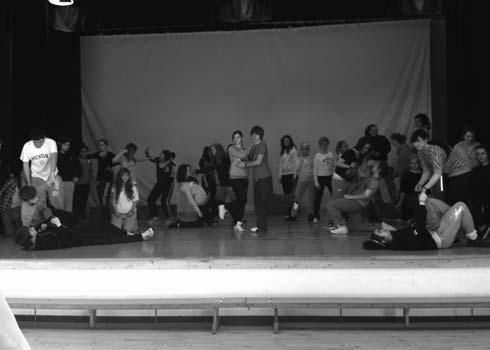
solo recorder, voice, violin, and flute. Students who enroll in music for second-year also commit to studying music during their third-year and to taking the Junior Cert exam. Therefore, the Junior Certification Music Course follows a two-year, sequential curriculum. Its objectives are performing, composing and listening. Much of the curriculum revolves around score study and practical performance. A typical lesson from my second-year class began with five minutes of ear training and/or dictation, then twentyfive minutes of score study, and ten minutes of recorder practice. I also created weekly quizzes based on the pieces or works that we had studied the previous week. Finding new and inventive ways of studying the score was always a challenge but also very fun. My favorite score activity was the dance I choreographed to Copland’s Hoedown to teach my students its form. I was fortunate to have second-year music on my schedule for many reasons; one of which was that it informed my curriculum choices for my first-year music class.
for their student teaching internships. After reading only the first few lines on the COST website, I knew it would be a perfect opportunity for me to combine all three of my passions. After a lengthy application process, tireless work from the COST staff, and support from the University of Alabama Music Education Department, I was placed in Cork, Ireland for the 2012 spring semester. Although admittedly nervous about my upcoming adventure, as the plane left the runway for Ireland, I decided to leave my anxieties at home and do my best to be open to all this new adventure could offer.
I soon found my optimistic mindset to be crucial, because secondary education in Ireland is considerably different from a typical high school in the states. First, secondary school, the equivalent of grades seven through twelve, is called first through sixth years. During this time, students must take the core subjects of Irish, English, and Mathematics. The junior cycle includes years one through three and culminates with the Junior
To say I was shocked on my first day at Presentation Secondary School, Ballyphehane is an understatement. I was prepared to spend my days in choir rehearsal, not teaching music academics—especially music theory! As my fellow undergraduate classmates can attest, music theory was not my forte. But there I was with a schedule full of music academics, no lunch break, and one hour per day of choir. And even more unsettling, unlike interns in the states, I was given my own schedule for which I was responsible. I taught first, second, and fourth-year music on my own, and team-taught first-year choir, senior choir, and fourth-year music theatre. I also helped prepare the Junior and Leaving Cert students for the practical parts of their exams: rhythm reading, sight singing or playing, group and
First-year music is an exploratory course. It bridges the gap from primary music (which students may or may not have experienced) to preparing for the Junior Cert. Therefore, there was a wide range of ability and, because it was mandatory, also a wide range of interest. When I asked the music teacher in charge of first-years what to teach, she said, “whatever you want!” First-year music thus became my “internship-gauntlet.” Not only was I required to create a diverse, exploratory music course, but I also was faced with preparing those interested to be successful in second-year music. With that in mind, I organized the course into the following five objectives: 1) Students will acquire a basic knowledge of music theory through score study and musicianship training. 2) Students will explore difference genres and composers through the study of music history and by
Natassia Perrine, choir director Anne Dunphy and composer Marian Ingoldsby after the world premiere of Fuinneamh
34 August/September 2012
Staging the opening scene of Grease!
listening or watching performances. 3) Students will be proficient recorder players, 4) Students will become fluent in solfege and in Curwen hand signs. And, 5) students will make connections between music and their culture and the other arts. I structured each class much the same as my second-years’ class, and through trial and error found a way to incorporate my five objectives into daily lessons.
Before I left for Ireland, my greatest fear was teaching and incorporating musicianship into choir rehearsal. Little did I know that I would be teaching full classes of
cooks in the kitchen. But, together, we made it work and created a meaningful experience for the students. I knew we had achieved something special when one of the most reluctant chorus girls thanked me after the last show and told me how glad she was to have participated!
Though the core of their music curricula is academic, Presentation Secondary School, is known for its award winning choir. In fact, the reason COST placed me at this school was because the choir won the 2011 All-Ireland competition. This spring, choir rehearsals were geared toward preparing for



come to life, due to its difficulty, it was very tedious to teach and was a consuming project for the choir. The students had to work very hard and even practiced outside of rehearsal to make the piece come together.
On May 3, 2012, my second to last day of student teaching, Fuinneamh received its world premiere at the Cork Choral Festival. We were so well-prepared that the performance was the best it had ever been. The “fuinneamh” was absolutely electric and everyone in the hall felt it. We were one of twenty choirs entered in the secondary level competition. I was so very impressed with the high standard of choral singing throughout the country—so impressed, in fact, that I wondered if we would place in the final ranking. Not only did we win the award for best Irish piece, we also took home first place! The recognition Ms. Dunphy and I hoped for was the Irish Federation of Musicians & Associated Professions trophy, which is awarded each year to the best Irish piece in the festival. I couldn’t think of a better way to end my internship on a high note.
music theory and history! The best part about teaching these two courses was the confidence I gained in teaching musicianship. Overcoming this fear was one of the most important things that happened to me while teaching in Ireland. It’s amazing what one learns about themselves in a sink-or-swim situation!
Another highlight of my internship was serving as the assistant director for the fourth-year musical, Grease! As a confident performer, this was a project I could easily sink my teeth into. All fourth-years were required to participate in Grease as part of their Transition Year. Though this made the process quite challenging at times, I learned that I truly can teach music to anyone, even students who don’t want to learn it! Musical rehearsal happened mostly during fourth-year music class, which was held four periods each week. During this time, I rehearsed music and choreographed for the chorus. My free periods became coaching sessions where I worked with students with lead roles. The drama teacher also gave me the opportunity to stage and direct a large portion of the show during our evening rehearsals. In addition to being a great directing experience, working on Grease was an invaluable lesson for me in team work. Between the drama director, the choir director, hired choreographer, and me, there were many
the annual Cork Choral Festival, which is an international competition. One of the requirements for the national secondary division is that each choir must perform a piece in Irish. So Anne Dunphy, music teacher and choir director, commissioned a piece specifically for the competition from her friend and composer, Marian Ingoldsby. The piece, titled Fuinneamh (pronounced fwInǝv), or “energy” was composed for SSA choir and percussion. Fuinneamh went through several revisions while I was in Ireland. My input was even included in the final edition! I also performed my percussion debut on claves and woodblock as accompanist for the performance. To be part of the creation process on all three levels, made for an incredibly meaningful experience.
Fuinneamh’s text is based on the famous Irish poem, Oíche Nollaig Na mBan by Seán Ó Riordáin, which also happened to be on this year’s Irish Leaving Certification exam. It is an extremely difficult piece with many dissonances and several two-against-three metric sections. The piece is based on a recurring three-note motive, which is sung on the word Fuinneamh. The idea behind the repetitive and maddening motive is that its “energy” creates a storm, which Ingoldsby most creatively composed into the score. Though exciting to see and hear Fuinneamh
Interning in Ireland opened my eyes to so much as a music educator. Most importantly, I realized how product-based American secondary music programs are. As one choir director said at this summer’s Alabama Choral Directors Association conference, “[Choir directors] are more than just song teachers.” Yet, many of our programs seem to value singing or playing the song over understanding the song. It is my belief that the greatest intrinsic reward comes from the ability to comprehend and manipulate subject matter. American music educators can facilitate this kind of reward system by placing importance on musicianship and the study of music theory and history. As a new high school choral director, I already have challenged myself to shape my music program through this lens. I encourage all of my colleagues in Alabama to find innovative ways to incorporate music academics into their programs. Not only will this yield better, more well-rounded musicians, but, with academic assessments in hand, music educators likely will be far better equipped to advocate for music’s place in Alabama’s schools!
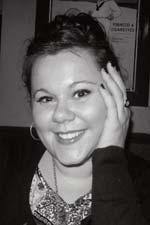 Presentation Secondary School, Ballyphehane Senior School Choir. Pictured center, Principal, Sr. Sheila Kellher, Natassia Perrine, and Choir Director Ms. Anne Dunphy.
Presentation Secondary School, Ballyphehane Senior School Choir. Pictured center, Principal, Sr. Sheila Kellher, Natassia Perrine, and Choir Director Ms. Anne Dunphy.
ala breve 35
Natassia Perrine is a graduate teaching assistant in music education at the University of Alabama.
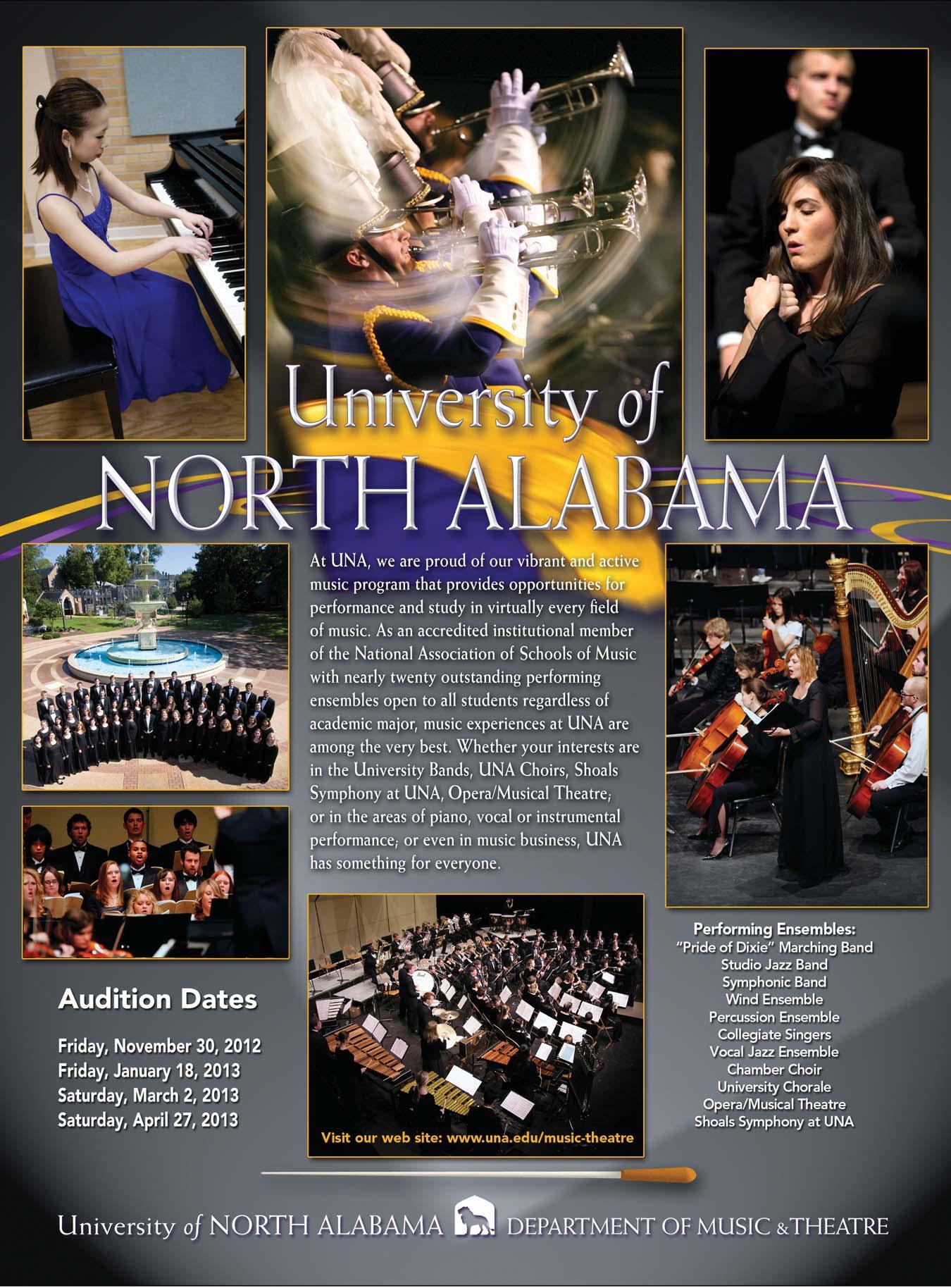
36 August/September 2012
Balance In All Things Tips That Click
We are now at the start of a new school year, which is a very exciting and busy time! A full slate of new opportunities and activities await all of us, and we all want to make the most of everything available. In our exhuburance to accomplish as much as possible as rapidly as possible, it is sometimes very easy to let things get very out of balance between our professional and personal lives. I was fortunate to have worked with Dr. Ted Galloway earlier in my career. Dr. Galloway was the director at Vestavia Hill High School for many years. As good as a musician and teacher as he was, I think Dr. Galloway taught me more about how to balance my ambitions for my professional life with appropriate goals for my personal life. As busy as he was with his school demands, Dr. Galloway always made time for his family and church activities. It is through him that I became a member of the Lions Club, and I have found that that time in a civic organization has only added to my skills as a teacher. The focus of this edition of Tips That Click is to provide information on how to ensure your lifestyle balance. In gathering research for this article, I was fortunate enough to have contributions from two of the most highly respected teachers in the state. They both give some very valuable information that should assist all of us.
Dr. Johnny Jacobs is a member of both the Alabama Music Educators Association AND the Alabama Bandmasters Hall Of Fame and has served as a teacher and mentor to many outstanding band directors in this state. He provides us with three great pieces of advice concerning achieving balance as a music educator: “First, give primary priority to your spiritual life. Everything else in your personal and professional life is a reflection of how you nurture yourself spiritually. Second, come to grips with
your philosophy of music education and make sure what you are doing each day is an outgrowth of it. This simply means deciding what you think is important in what you do, and stick to it. This should help you remain focused on your core musical and educational values. Lastly, don't try to implement every good idea you ever heard of or thought of. Pick the best ones and do an excellent and thorough job of them with your students.”
Chuck Eady is the Past-President of the Alabama Bandmasters Association, and has served for over three decades as a band director in Alabama and Tennessee, currently teaching at Pleasant Grove High School. He offered his valuable insights into keeping things balanced: “In my younger days I must confess that I allowed my band program to consume me. As I matured and started a family my perspective began to change. I was fortunate to be around some older, wiser band directors, who encouraged me to maintain a balance (don't marry your band program). I never bring my concerns with work home; I leave them at the office. When I am at home I give my attention to my family. I try to set aside special time for my wife and I alone as well as times we can spend with our family. I like to play golf with my sons and my friends, and I enjoy woodworking. When I have off days from school I try to stay away from my office and my students. Get away time is crucial. One of the highlights of my year is attending the Mid-West Clinic in Chicago. I would urge any director that has never attended to go. Best clinics and concerts, and a great time of comraderie with other directors from across the world. I am beginning my 36th year of teaching and still love what I do!”
As we begin this new school year, I hope that you strike the balance that will help
you have the most rewarding and productive year yet. Reread this advice from time to time and apply the principles given by these outstanding directors!
Rho Chapter of Phi Beta Mu International Bandmaster Fraternity is committed to improving quality instruction and advancement of bands in this state. Please email pemin@mac.com with any comments on this column or suggestions for future columns.

Phi Beta Mu Director’s Planning Guide
Rho Chapter has created a free Director’s Planning Guide to help you plan your way to a successful year! This publication has many helpful suggestions, and has plenty of room for you to add notes or adapt to your individual situation. This free and valuable booklet is available on the Alabama Bandmasters Association website (see the sidebar menu) or can be requested by emailing: pemin@mac.com

Phi Beta Mu ala breve 37
2013 AUDITION DATES
Saturday, February 9 | Saturday, February 23
INSTRUMENTAL ENSEMBLES

• Symphonic Band
• Orchestra
• Concert Band
• Campus Band
• Marching Band
• Percussion Ensemble
• Jazz Band
• Trumpet Ensemble
• Low Brass Ensemble
• Wind Quintets
CHORAL / VOCAL ENSEMBLES
• Chamber Choir
• Concert Choir
• Gospel Choir
• Men’s Chorus
• Conductor’s Chorus
• Women’s Chorus
• Opera Workshop
• AU Singers
DEGREES
• Bachelor of Arts in Music
at AUBURN UNIVERSITY
www.auburn.edu/music
• Bachelor of Music
• Bachelor of Music Education
• Master of Education in Music Education
• Education Specialist in Music Education
• Doctor of Philosophy in Music Education
FOR MORE INFORMATION Auburn University
Department of Music
101 Goodwin Music Building Auburn, AL 36849-5420
Phone: 334.844.4165
Fax: 334.844.3168
www.auburn.edu
Email: music@auburn.edu
www.auburn.edu/music
Auburn University is an equal opportunity educational institution/employer.
38 August/September 2012
We are elated that the legislature did approve the school budget for the next school year... it could have been a disaster. Many thanks go out to the many people who worked hard to salvage our school system.

Reportedly, there are 59 schools that have been listed as non-performing schools that have some problems that need to be addressed. Let’s consider a different approach... music! Reinforcing the music programs may be the answer to many of these problems...at any rate we might be able to correct the problems by sneaking in the back door. The students consider many subjects in school drudgery. Let’s face it, how do you make some subjects fun? Music gives the students a creative break, many times keeping them in school and teaching them the things parents struggle with at home. Music ends up being great fun. They may feel like they are not doing all that great in other subjects, but they can feel good about themselves and their abilities in how to make music. It is great therapy for kids as well as adults. Nothing builds school spirit more than music and it becomes a vital part of the education system. Even people that don’t play music driving down the road, depressed and maybe even thinking about suicide...suddenly a tune comes on the radio that they relate with and before the tune is
over, their whole mood has changed with the powerful therapy of music. Having been in music as a student in school, a professional musician, and working in the music business since 1947, I personally know from my experience as well as seeing it happen over the years.
Is it possible that God gave us this tool? If so, let’s use it and build a team school spirit. As educators we know that young boys are over programmed to keep the species going and music can be an even more powerful drive, giving them the feeling of success while keeping them out of troubles and enriching their lives. Music is the universal language; enriching lives, preventing crime, and it’s the fun thing in school. When this music excitement gets started, it bleeds over into all other areas of a student’s life going with them throughout life. I know what I am talking about because I have observed it for over 70 years making school a fun environment for learning. Music turns lives around and it could turn your school around.
As these students go out into the real world with the slowdown in our economy, it will help them to cope with life. Music can change attitudes of a whole school system. Your music teacher should have the ability to make it fun while showing love and
outgoing concern for the students. Think it out to the end...a good music program can turn a school around bringing happiness to the individuals. In depressed times, music could be your very best friend. Students may not always be able to depend on others for their happiness but music will help them to put things into perspective, become smarter, see the big picture, and helping them to develop themselves.
As we go through life and as we go through school, we have to have diversion. Everything can’t be grueling all the time. We need to have some music fun. If there is any way Capitol Music can be of any assistance, we are your humble and obedient servant with tremendous resources to work with. The National Association of Music Merchants (NAMM) has just announced that Capitol Music is one of the top 100 dealers out of the 2,259 music retailers in America. Check with us and let us show you what we can do for your school.
Warmest Regards,
CAPITOL MUSIC
Jim Darby Owner
ala breve 39
Letters
Visit the AMEA website (www.alabamamea.org) and download the forms you need. Click on “AMEA Forms” located in the menu on the left side of the AMEA home page to find the following forms: Hall of Fame Nomination Form Outstanding Music Educator Nomination Form Outstanding Administrator Nomination Form Barbara Odom Distinguished Service Award Nomination Form FAME Registration Form Call for Sessions Form Performance Application Young Composers Competition Application
Missing the forms?
AMEADivision Events 2012 - 2013
Alabama Bandmasters Association
AMEA In-Service Conference/All-State Jazz Band
January 10-12, 2013 - Renaissance Montgomery Hotel at the Convention Center
All-State Solo Festival
April 17, 2013 - UAH, Huntsville
District I
District Fall Meeting
HS All-State Band Auditions
MS All-State Band Auditions
District Honor Band
State MPA (Huntsville)
State MPA (Decatur)
Solo & Ensemble Festival
Solo & Ensemble Festival
District Spring Meeting
District II
District Fall Meeting
All-State Band Auditions
District Honor Band State MPA
Solo & Ensemble Festival
Solo & Ensemble Festival
District III
District IV
All-State Band Auditions District Honor Band State MPA
Solo & Ensemble Festival
District Fall Meeting
All-State Band Auditions
State MPA (High School) State MPA (Middle School)
District Honor Band
Solo & Ensemble Festival
Solo & Ensemble Festival District Spring Meeting
District V
All-State Band Auditions State MPA
District Honor Band
Solo & Ensemble Festival
Solo & Ensemble Festival
District VI
All-State Band Auditions District Honor Band State MPA
Solo & Ensemble Festival
Solo & Ensemble Festival
District Spring Meeting
District VII
District Fall Meeting
All-State Band Auditions
State MPA
Solo & Ensemble Festival
Solo & Ensemble Festival
District Spring Meeting
District VIII
District Fall Meeting
All-State Band Auditions
State MPA
District Honor Band
Solo & Ensemble Festival
Solo & Ensemble Festival
All-State Band Festival
April 18-20, 2013 - Von Braun Center, Huntsville
Summer In-Service Conference
June 26-27, 2013 - Hampton Inn and Suites, Orange Beach
August 27......................................UAH University Center
January 25.....................................................Sparkman 9th
January 26.....................................................Sparkman 9th
February 8-9...................................Bob Jones High School
February 21-22..............................................Huntsville HS
March 14-15......................................................Decatur HS
April 6...................................Meridianville Middle School
May 3..............................................Priceville High School
May 13...........................................UAH University Center
August 27.................................................Gadsden City HS
January 19.......................................Southside High School
March 15-16..................................Albertville High School
February 27-March 1...............................Gadsden City HS
April 22...................................................Arab High School
May 4...................................................Oxford High School
January 26...............................Muscle Shoals High School
February 22-23.............................Russellville High School
March 5-7....................................................................UNA
May 4 ...........................................TBA
September 10......................................Hoover High School
January 26.................................Homewood Middle School
February 26-28.............................Homewood High School
March 5-7............................Hewitt-Trussville High School
April 5-6.......................................Homewood High School
April 23.....................................Homewood Middle School
May 4.............................................Bumpus Middle School
May 20................................................Hoover High School
January 26......................................Prattville High School
February 20-21..............................University of Alabama
February 22-23..................................District Honor Band
March 14........................................Prattville High School
April 23............................................................Tuscaloosa
January 26..........................................Opelika High School
February 22-23...................................Auburn High School
March 11-13.......................Benjamin Russell High School
April 6................................................. Trinity Presbyterian
May 4..................................................Auburn High School
May 16.........................................................................TBA
August 27....................................Spanish Fort High School
January 19.......................................Davidson High School
Week of March 11.................................Baker High School
TBA...............................................Semmes Middle School
May 4......................................Spanish Fort Middle School
May 6...........................................................................TBA
August 27.....................................................................TBA
January 26.....................................Troy Elementary School
March 6-8.......................................Enterprise High School
March 15-16...................................Enterprise High School
May 4.....................................................Excel High School
May 11..........................................Troy Elementary School
40 August/September 2012
District I
Alabama Vocal Association
Fall Workshop - September 7-8, 2012 - Location TBA
All-State Show Choir Auditions - September 27-28, 2012 - Wallace State, Hanceville
All-State Show Choir Auditions - September 29, 2012 - First Baptist Church, Montgomery
All-State Auditions (You may register at any site)
November 1, 2012 - St.James, Montgomery
November 2, 2012 - Spring Hill Baptist Church, Mobile
November 4, 2012 - Florence Middle School, Florence
November 5 & 6, 2012 - Mayfair Church of Christ, Huntsville
November 7, 2012 - Mt. Zion Baptist Church, Alexandria
November 8 & 9, 2012 - Site TBA, Birmingham
All-State Show Choir Festival at AMEA Conference - January 10-12, 2013 - Renaissance Montgomery Hotel
All-State Festival - March 6-9, 2013 - Samford University, Birmingham
OA, OCS, & Music Ed Scholarship State Choral Performance Assessment
District II OA, OCS, & Music Ed Scholarship State Choral Performance Assessment Spring Solo & Ensemble
District III
District IV
OA, OCS, & Music Ed Scholarship State Choral Performance Assessment Spring Solo & Ensemble
OA, OCS, & Music Ed Scholarship State Choral Performance AssessmentSpring Spring Solo & Ensemble
District V OA, OCS, & Music Ed Scholarship State Choral Performance Assessment Spring Solo & Ensemble
District VI
OA, OCS, & Music Ed Scholarship Music Ed State Choral Performance Assessment Spring Solo & Ensemble
District VII Fall Solo & Ensemble
OA, OCS, & Music Ed Scholarship State Choral Performance AssessmentHonor Spring Solo & Ensemble
November 29..........................................................................TBA
March 13-14....................................First Baptist Church, Decatur
April 4-5........................Willowbrook Baptist Church, Huntsville
November 29..............................Tuscaloosa County High School
April 4....................................................................................TBA
April 3-4.................................................................................TBA
November 29..........................................................................TBA
February 25-27.......................................................................TBA
February 25-27.......................................................................TBA
November 29...........................................Alexandria High School
April 5..............................................First Baptist Church, Oxford
February 28.....................................Jacksonville State University
TBA.......................................................................................TBA
March 1..................................Columbia High School, Huntsville
April 4-5........................Willowbrook Baptist Church, Huntsville
November 29..........................................................................TBA
March 15.......................................First Baptist Church, Tallassee
March 15.......................................First Baptist Church, Tallassee
November 15..........................................................................TBA
November 29..........................................................................TBA
February 21............................................................................TBA
February 21............................................................................TBA
Elementary/General Division
September 28, 2012 Elementary Music Festival, Samford University, Rollo Dilworth Conductor
September 29, 2012 Joint AMEA/AOSA Fall Workshop, Deer Valley Elementary, Rollo Dilworth Clinician
November 14 – 18, 2012 AOSA Conference St. Louis, MO
January 10 – 12, 2013 AMEA Conference, Renaissance Montgomery Hotel and Convention Center
Collegiate AMEA Division
October 20, 2012 Collegiate Summit , University of Alabama
January 10-12, 2013 AMEA Conference, Renaissance Montgomery Hotel and Convention Center
Alabama Orchestra Association
January 10-12, 2013 AMEA Conference, Renaissance Montgomery Hotel and Convention Center
February 7-10, 2013 AOA All-State, University of Alabama
See page 17 of this issue for All-State audition dates and deadlines
ala breve 41
Alabama School University of ofMusic




ofMu fM
Music
Kindermusik

educatingthe ot
t ts ac Even etime learni liffe options f ers m offffe tion of U popula ting the rom tivities .ng foor many A,

student
Million Dollar Band

areavailablefr




In addition to educating the student population of UA, Moody offers many other options for lifetime learning. Events and activities are available from pre-school age through the senior community and with beginning through advanced experience

an ough adv thr
Camps
For more visit www.music.ua.edu
e v or mor F
and with begin ommu senior c ough the thr -school age pre ailable fr e a nced ning y nit .uw.music w w





a.edu ofMusic heUASchoolT Th
ormoreon re tabletffo t or smar our eader y r re odec co anc Sca
Scan this image with a QR code reader on your smart phone or tablet for more on The UA School of Music



Facilities

Music
UA Opera Theatre
Community


PRSRT STD US POSTAGE PAID Dothan, AL 36303 Permit No. 623 • Award winning first class service • Delivery service second to none • Full line of educational aids and services • Experienced assistance in recruiting programs • Full inventory of band and orchestra instruments • Acoustic pianos and digital keyboards • Large print music department • All major brand names. and the winner is YOU, OUR CUSTOMER! 334/271-2787 3030 East Blvd. Montgomery, AL 36116 334/793-1284 1861 West Main Street #1 Dothan, AL 36301 205/995-8376 4647-O Highway 280 Birmingham, AL 35242 Award Winning Service 800-341-2787 www.artsmusicshop.com











































































































































































































 Jody Powell,- President, Alabama Vocal Association
Whether you sing in the choir, dance in a musical theater production, play an instrument in a band, have a passion for opera, or lead worship for your church, the University of Mobile Center for Performing Arts has the program for you!
Jody Powell,- President, Alabama Vocal Association
Whether you sing in the choir, dance in a musical theater production, play an instrument in a band, have a passion for opera, or lead worship for your church, the University of Mobile Center for Performing Arts has the program for you!














 Stephanie Pesto - President, Collegiate AMEA
Stephanie Pesto - President, Collegiate AMEA
 By Doug Orzolek
By Doug Orzolek






































































 GSCC Show Band Director Rip Reagan at rehearsal, Monday, April 18, 2011, at the band room at GSCC in Gadsden, Ala. (Gadsden Times, Marc Golden)
GSCC Show Band Director Rip Reagan at rehearsal, Monday, April 18, 2011, at the band room at GSCC in Gadsden, Ala. (Gadsden Times, Marc Golden)
 By: Natassia Perrine
By: Natassia Perrine





 Presentation Secondary School, Ballyphehane Senior School Choir. Pictured center, Principal, Sr. Sheila Kellher, Natassia Perrine, and Choir Director Ms. Anne Dunphy.
Presentation Secondary School, Ballyphehane Senior School Choir. Pictured center, Principal, Sr. Sheila Kellher, Natassia Perrine, and Choir Director Ms. Anne Dunphy.























